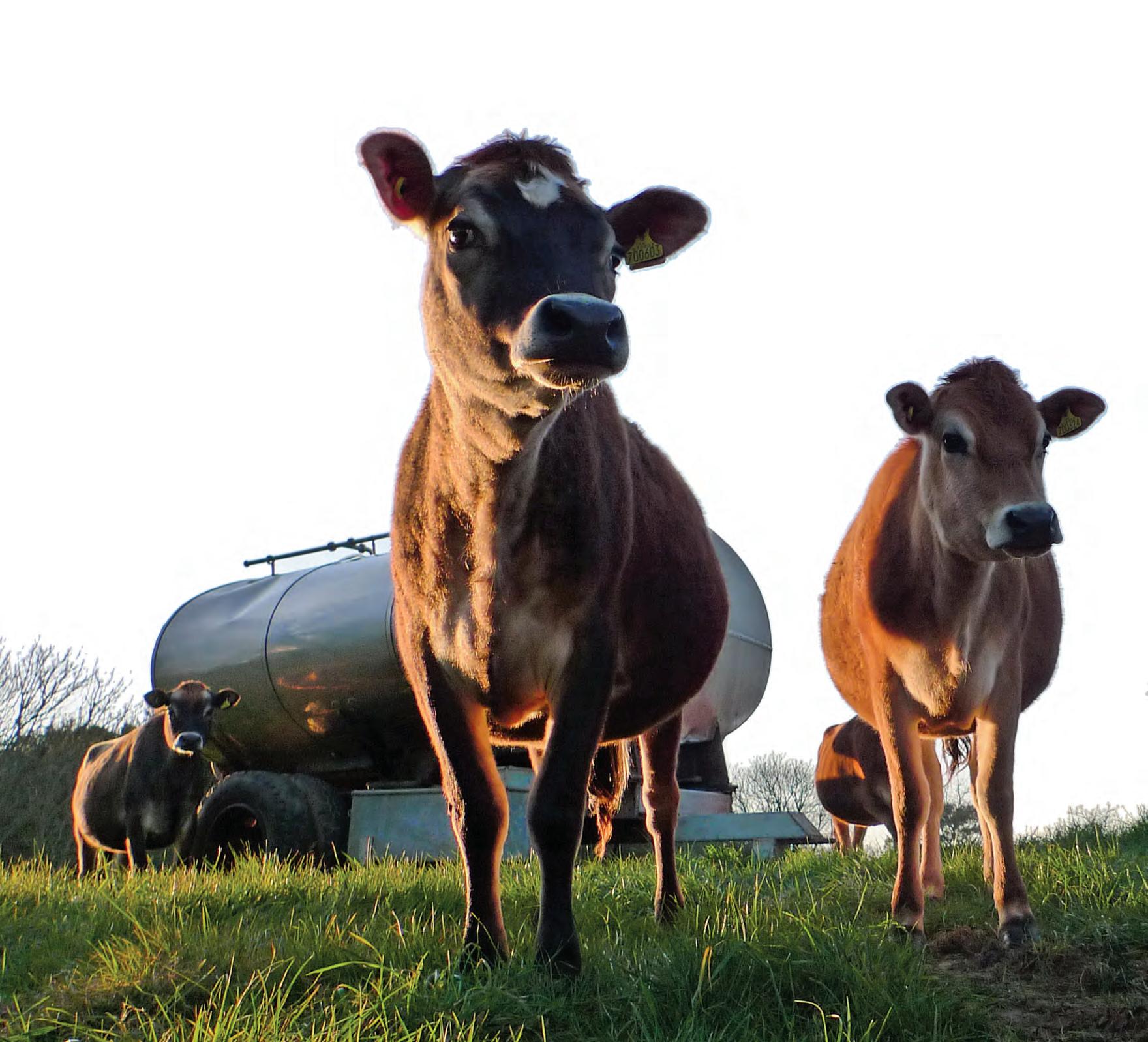
FARMING IN THE SPRING PLANTING 2023 An Agricultural, Farming and Rural Development Supplement to the Freeborn and Mower County Shoppers.
QOK UP, AND LOOK OR POWER LINES





• LOOK UP! before moving or transporting equipment especially around buildings, grain bins or entrance/exiting fields and farms.
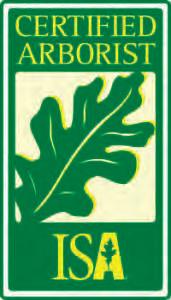
• POWER LINES should be at least 18 feet above the highest point of grain bin where portable augers or other portable filling equipment is used.
--CONSIDER BURYING electric lines to reduce .r the risk of accI en ontaee.--------..1


• STAY BACK from the guy wires on electrical poles. Bumping these will cause sagging in the overhead lines and will make entanglement more likely.
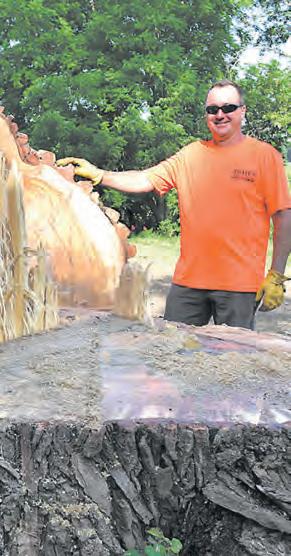
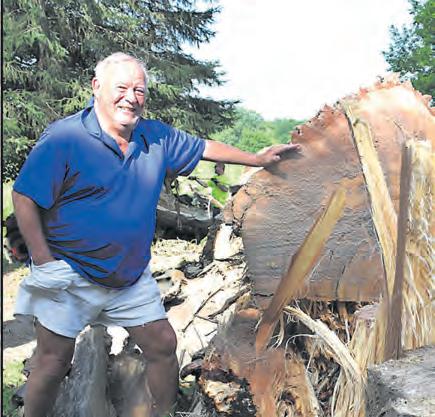




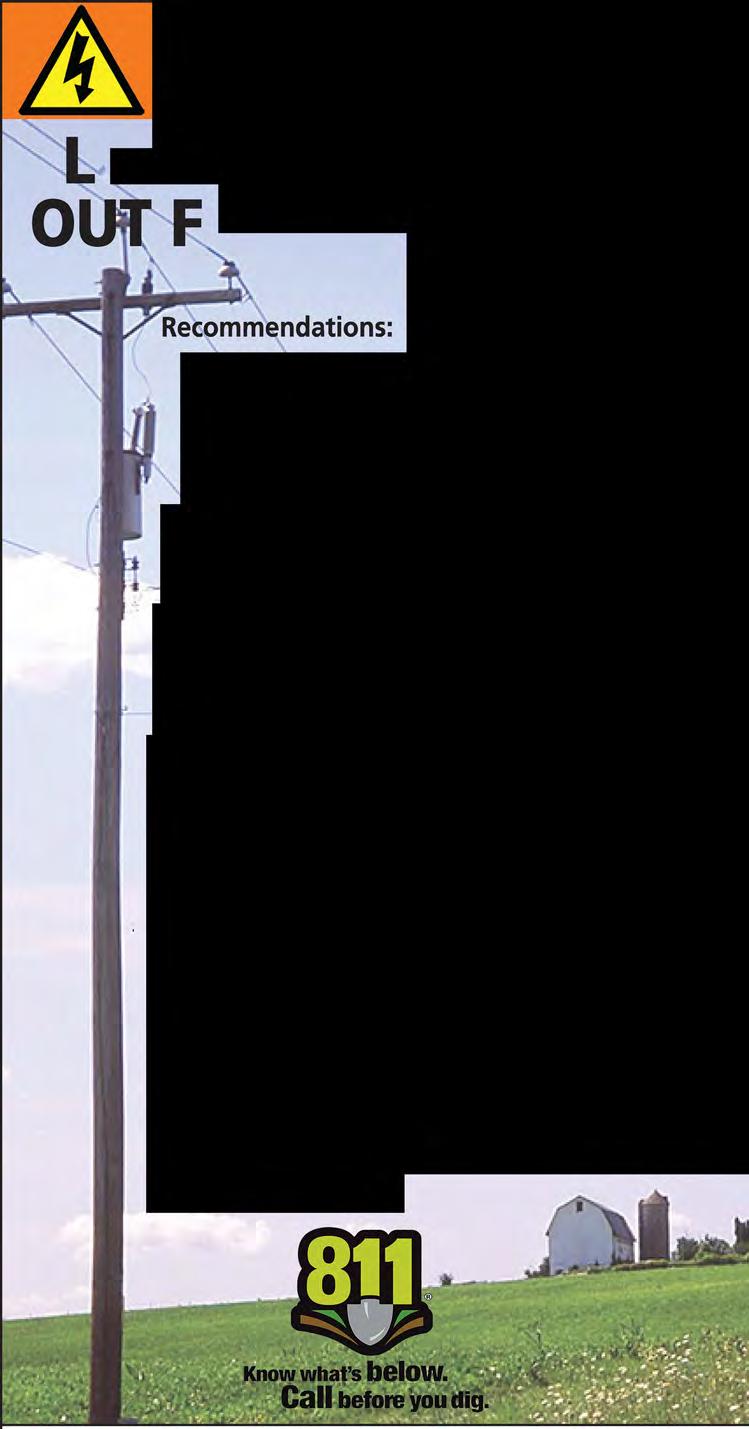
• ST AY ALERT and never take unnecessary risks. Remember during transportation, some equipment is actually taller than when in use.
ENTANGLEMENT If your equipment becomes entangled in POWER LINES, stay inside unless the equipment starts on fire.
If you are staying in the equipment, contact our office.
FIRE
If your equipment starts on fire, jump as far away from the equipment as possible, landing on both feet. Then, hop with feet together to safety, and call 911 !
SPRING 2023 | SUP PLEMENT TO THE MOWER AND FREEBORN COUNTY SHOPPER
WARNING!
Freeborn Mower Electric Cooperative People. Power. Possibilities. This institution is an equal opportunity provider and employer. 3366 Bridge Ave I PO BOX 611 Albert Lea, MN info@fmec.coopIwww.fmec.coop (800) 734-6421 (507) 373-6421 00 Monday - Friday, 7:00 a.m. - 3:30 p.m.





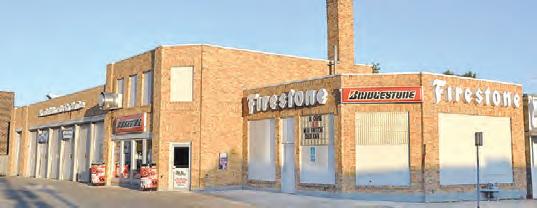






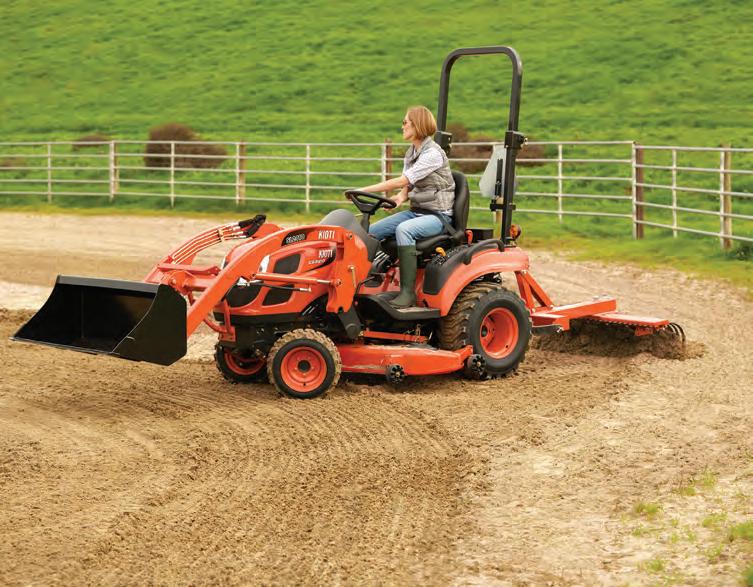
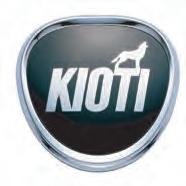
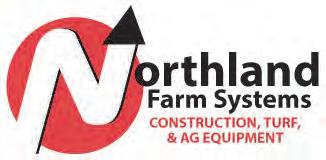
SPRING 2023 | SUP PLEMENT TO THE MOWER AND FREEBORN COUNTY SHOPPER
Farm tab Fall 2018
Mark’s Cell (507) 383-6550 or Phil’s Cell (507) 330-1889
HIGHLY PATHOGENIC AVIAN INFLUENZA (HPAI) UPDATE
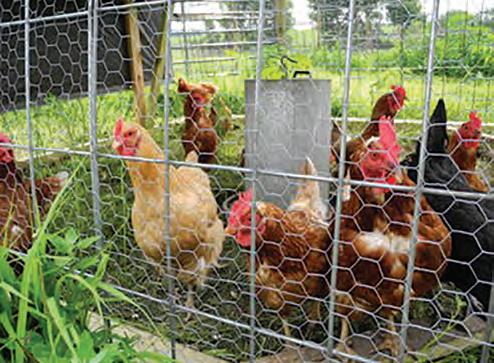 Author: Abby Schuft, Extension
Author: Abby Schuft, Extension
April 3 update from the Minnesota Board of Animal Health: 2023 HPAI wave begins less than four months since last detection in Minnesota.
HPAI or avian flu never left the United States in 2022 like it did in 2015. Minnesota may again start to see the virus affect chickens, turkeys and wild waterfowl this spring.
Join representatives from the state board of animal health, department of health and Extension educator Abby Schuft for a webinar on April 20, to learn more about what is happening in Minnesota with HPAI.
Our guidelines to reduce avian flu for backyard flock and commercial flock owners remain the same as in 2022:
• Minimize, prevent and eliminate any contact you or your birds have with wild waterfowl.
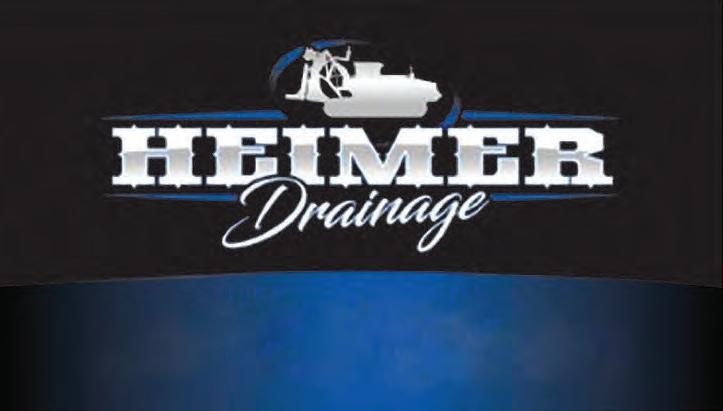

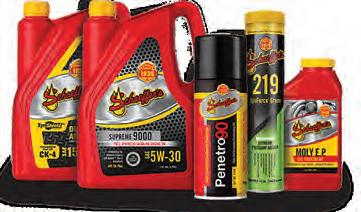
Poultry Educator
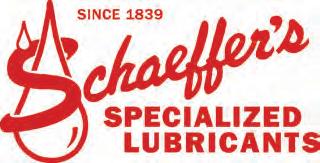
Center.
• Feeding birds in feeders is okay! Song birds still are not known to be reservoirs of avian influenza.
• Report sick or unusually high deaths of flocks to the Minnesota Board of Animal Health.
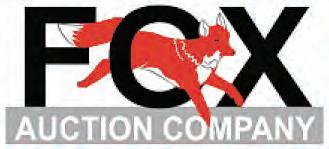
• Report dead waterfowl to the Minnesota Department of Natural Resources (5 or more birds in one place) at 888-646-6367.
• Report injured or sick raptors to the University of Minnesota Raptor
• Report sick or dead domestic or wild birds to the Minnesota Board of Animal Health. They will make sure that the appropriate agency responds. You can do this by calling the Minnesota Avian Influenza Hotline at 833-454-0156 or submit a report online.
There are 131 known cases of mammals contracting HPAI, likely from eating infected birds. All of these mammals have been wild animals. Minnesota has had nine cases reported, with eight being red fox in multiple counties and one skunk. These are significant new findings that didn’t exist in the 2015 outbreak.
SPRING 2023 | SUP PLEMENT TO THE MOWER AND FREEBORN COUNTY SHOPPER 1 spot Farm Spring Farm Equipment • Farm Land • Estate • Real Estate Col. Frank Fox - cell 641-420-3243 www.foxauctioncompany.com “Professional AuctioneeringIt’s What We Do”

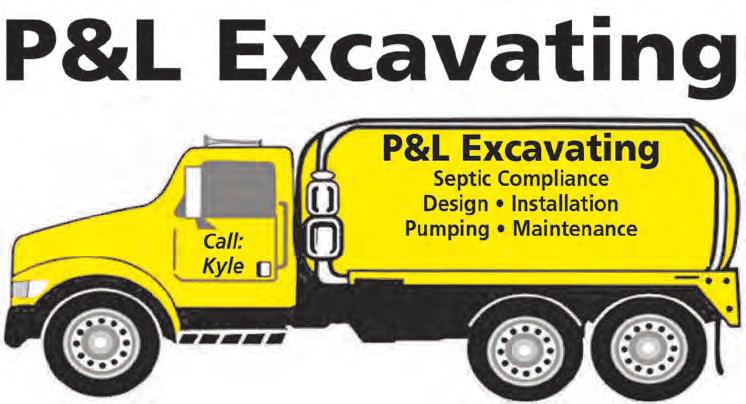

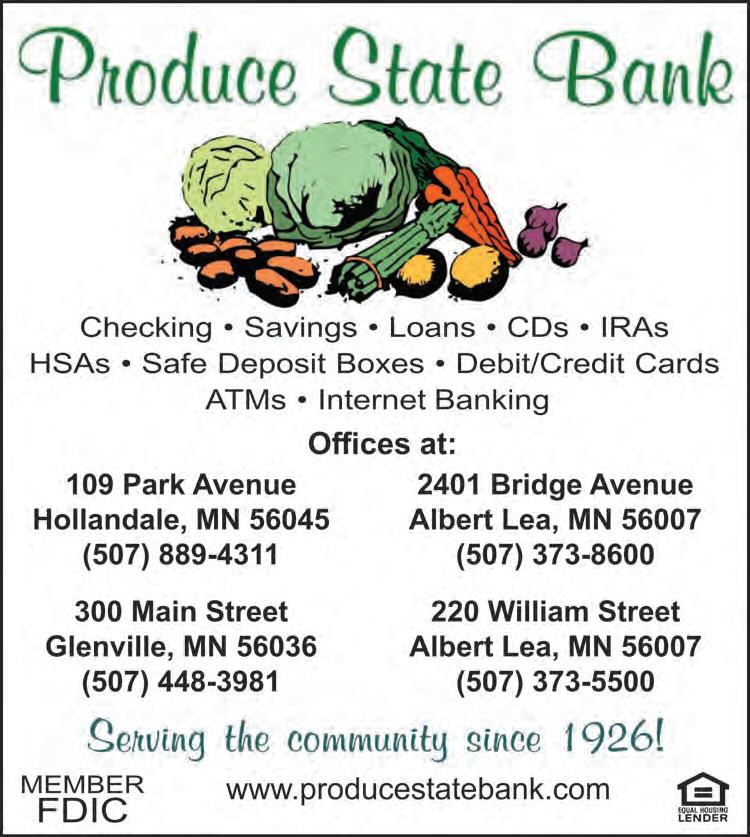
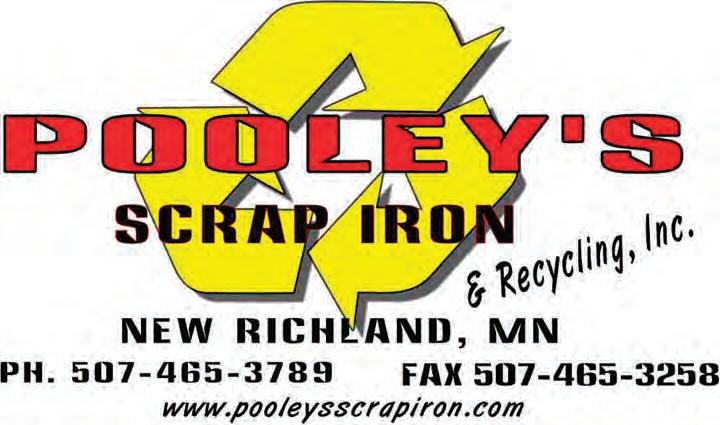

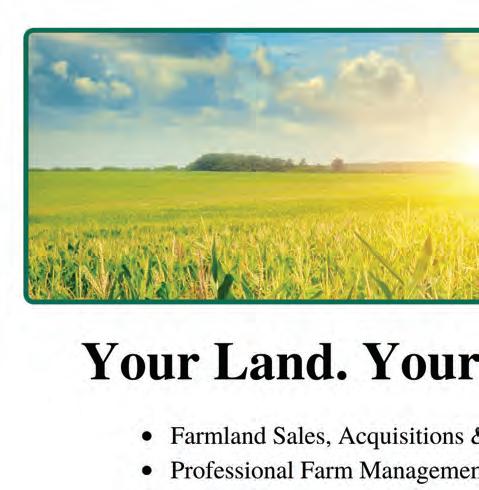

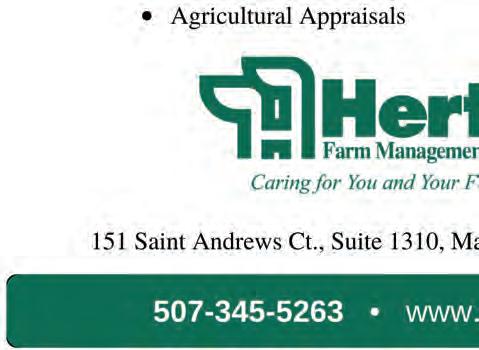

1 spot Farm Fall *Hot & Cold Washers *KO Cleaning Products 102 3rd St S, Rose Creek, MN • 507-433-2227 High Pressure Cleaning Equipment Dealer/Sales & Service
SNIPPETS ON LAND IN THE HEARTLAND
Terri Jensen, ALC – MN, Broker, National Land Realty | 507-382-0908
Snippets in early April include:
• Farmland prices
• Freeborn & Mower County Prices/Trends
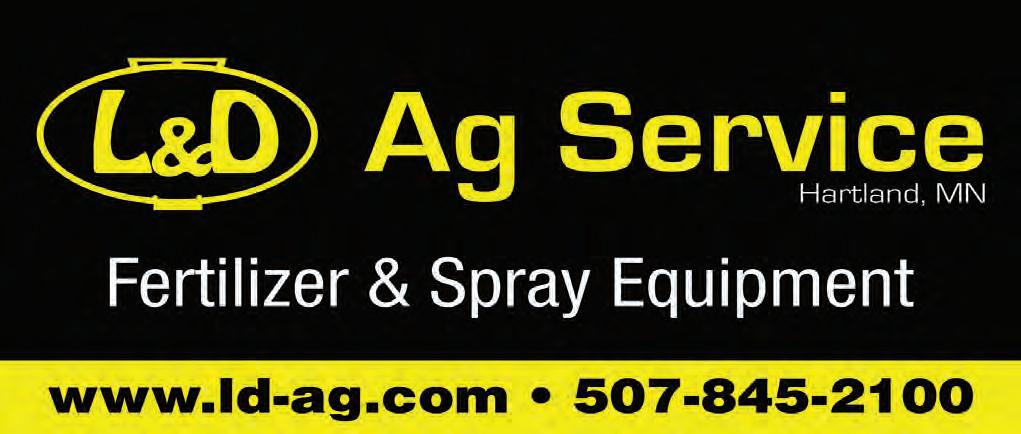

• Land value vs. land prices
Farmland Prices: farmland prices in the Midwest continue to see an upward trend in early 2023. Why? Solid yields and good commodity prices for corn and soybeans in 2022 contributed to higher farm income. Likewise, land prices reflect that demand in many areas exceeds the supply of land for sale.
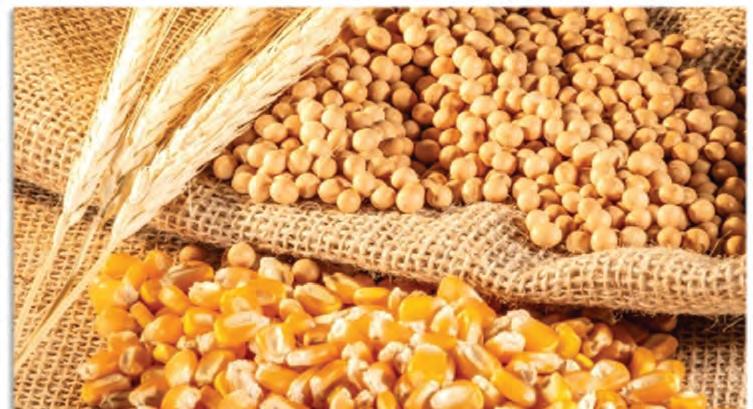
Who is buying? Expansion farmers across the heartland continue to be the major purchaser of farmland – from 7285% of farmland being purchased by farmers; the balance by investors and 1031 exchange buyers.
Impact from interest rate increases: the rapid rise in interest rates over the past 12-14 months with further increases by the Fed may negatively impact the ability of farmers, especially beginning farmers, to purchase land.
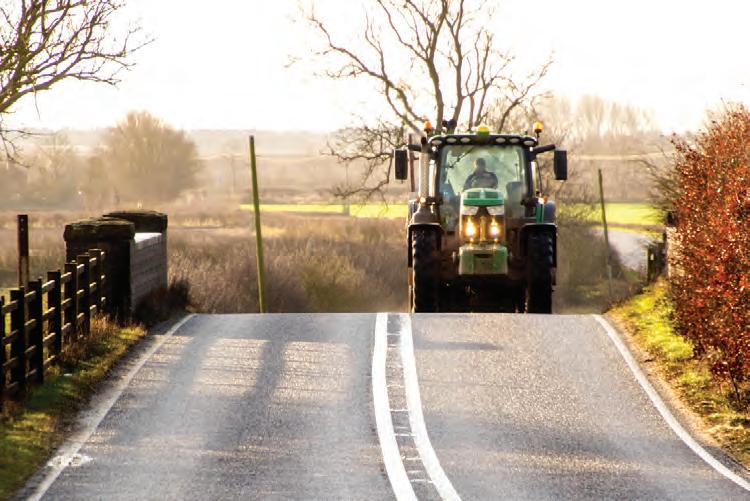
With that said, expectations for land over the next year to five years: continued upward movement on land prices with quality land experiencing modest increases and/or stabilizing prices.
Freeborn & Mower County Values/Trends: Freeborn County noted increasing land prices with the largest number of farms sold in 2021. Prices ranged from $6000/acre to $14,100/acre with sales being a mix of private treaty and auction sales. Cash rents range accordingly from a low of $225/acre to a high of $500/acre (from the 2022 ASFMRA Land Value/Cash Rent Survey).
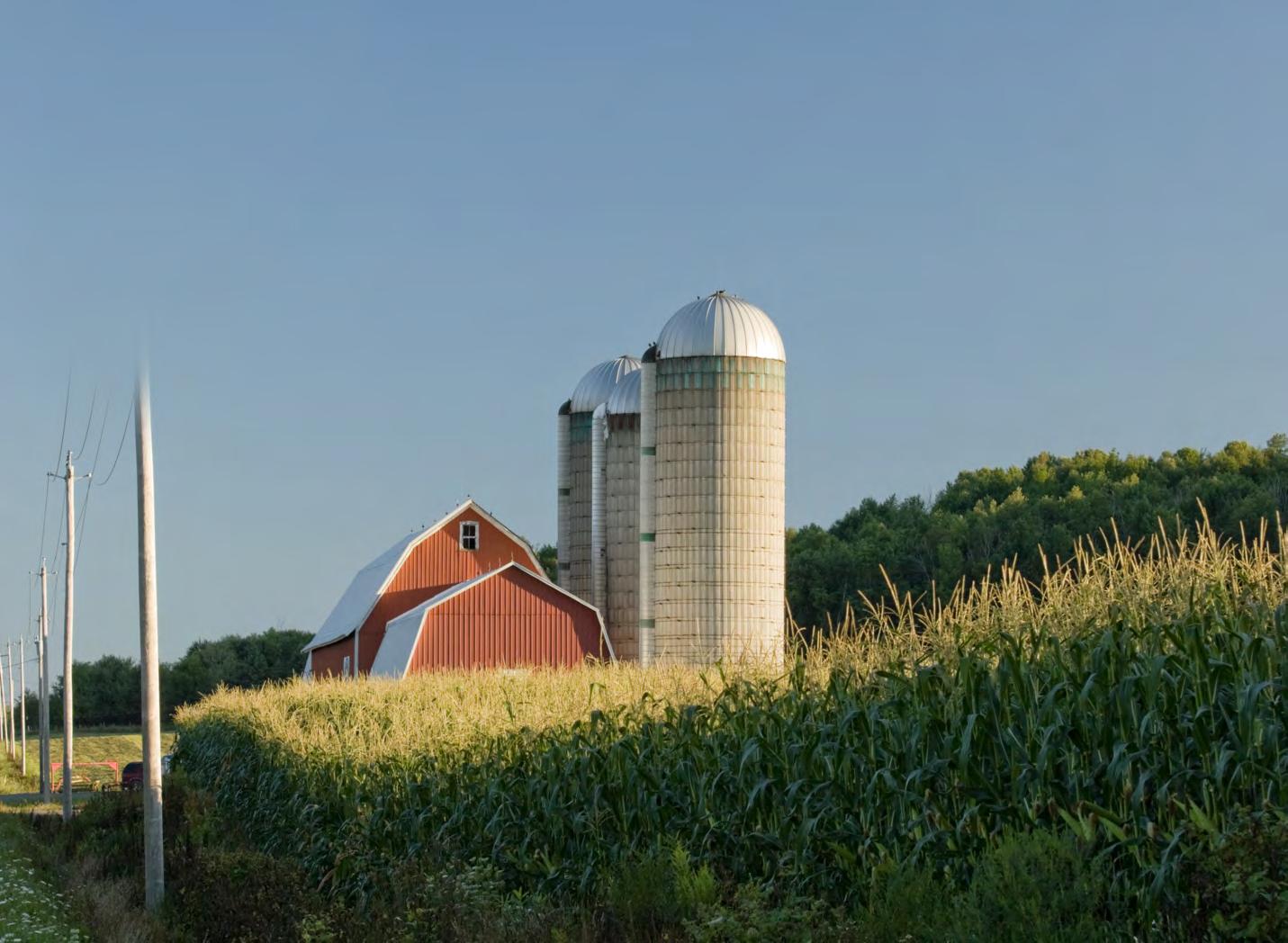
Both Freeborn and Mower Counties have good, productive land that is attractive not only to farmers, but investors as a safe, long-term investment. Again, the global economy, high input costs, and rising interest rates are potential challenges over the next year to five years.
Mower County also noted increasing land prices with the largest number of sales in 2021. Prices ranged from $4000/ acre to $13,650/acre with sales being a mix of private treaty and auction sales. Cash rents range accordingly from a low of $300/acre to a high of $500/acre (from the 2022


Land values vs. land prices – are these the same thing? These are not the same thing, although the terms are often used interchangeably. Land values refers to the estimated worth of land that considers location, zoning, current market conditions, etc. Land prices: this term most often reflects a specific price that land is currently being offered for sale at and is more of a concrete figure. A licensed appraiser provides an opinion of market value; a land real estate broker or agent can provide land prices vs. land values (unless they also hold an appraiser license).

Family farms fuel the world
 POET.COM/GLENVILLE
Agriculture doesn’t just power the local economy, it powers the planet. POET is proud to work with local ag producers to create global renewable energy solutions. Turns out, all it takes to change the world is a few big ideas and a lot of hard work.
ASFMRA Land Value/Cash Rent Survey).
POET.COM/GLENVILLE
Agriculture doesn’t just power the local economy, it powers the planet. POET is proud to work with local ag producers to create global renewable energy solutions. Turns out, all it takes to change the world is a few big ideas and a lot of hard work.
ASFMRA Land Value/Cash Rent Survey).



















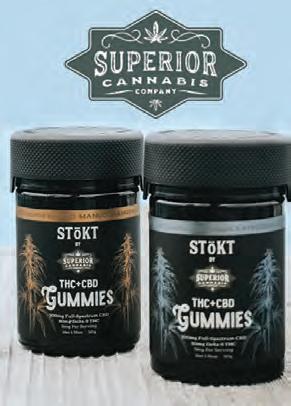
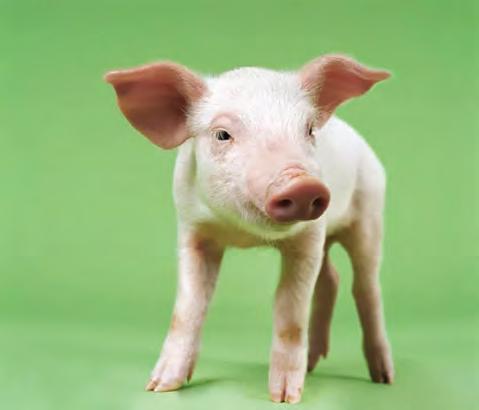


SPRING 2023 | SUP PLEMENT TO THE MOWER AND FREEBORN COUNTY SHOPPER spring 2019 ALBERT LEA BOMGAARS 1721 W. MAIN ST. Visit us online at www.bomgaars.com or Follow Us on • FARM & RANCH • ANIMAL FEED • LAWN & GARDEN • TOOLS • ACCESSORIES • NURSERY
TEST YOUR SOIL THIS SPRING
It’s time to think about testing your soil to prepare for summer.
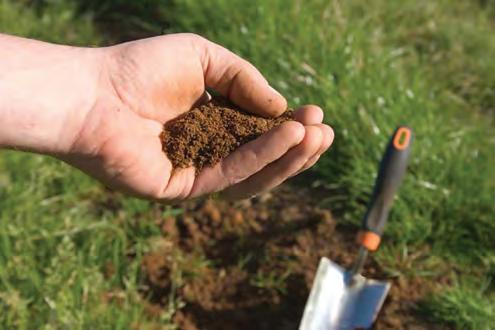
Whenever we get questions about fertilizing lawns and gardens at Extension, we always ask if a soil test was done on the area in question. Submitting a soil test to a lab is the best way to determine the state of your soil. The soil test results will give you recommendations to improve performance and you will save time and money by following lab-driven results.
When and What to Test
It is best to do a soil test every three to five years and when you are making a change such as converting lawn to a garden bed. The University of Minnesota Soil Testing Laboratory
offers soil tests for $19.



The basic soil test, without any addons, will give you the estimated soil texture, organic matter, phosphorus, potassium, pH and lime levels in your soil. You also can request tests for calcium and magnesium; zinc, iron, copper and manganese; boron, nitrate,
lead and soluble salts for an extra fee. The test results will come with recommendations for fertilizing.
How to Collect a Soil Sample
Collecting the soil sample is an important step in the process. If you are sampling in a field or garden, walk and collect in a zig-zag pattern across the area. If you are sampling from raised beds or in a high tunnel, collect soil samples from the beds rather than the areas between them. Taking samples from an orchard or vineyard requires collecting samples within rows between plants.
Your local county Extension office can provide you with free soil sample bags and submission forms.




Over 7+ Years in the Industry. A great company to hire that custom hauls manure! We stress on doing it right the first time and up to your expectations! 507-438-4203 1 Spot Farm Tab Spring 2019 1 spot Farming Heartland DIESEL REPAIR • TRAILER REPAIR IDWEST DIESEL MSales & Service, L.L.P. GARY LETENDRE 24 Hour Emergency Service I 90 EXIT 178 A 2409 - 4TH STREET NW AUSTIN, MN 55912 Authorized Dealer (507) 437-6394
Emily Hansen, Extension Horticulture Educator
MINNESOTA FARM BUSINESS MANAGEMENT CELEBRATES 70 YEARS
A celebration event to be held on September 11
STAPLES, Minn. (February 3, 2023)
– The Minnesota State Farm Business Management (FBM) program is excited to celebrate its 70th year of offering educational programming to students. In 1953, the FBM program was established to educate active farmers in Minnesota using a studentcentered, one-on-one instructional approach. FBM has grown from humble beginnings to over 2,800 students today. FBM will recognize this growth and more during their year-long celebration, ending with a recognition celebration in September.
FBM, which is offered at seven institutions across the state, works to provide educational opportunities for students to be successful in a competitive agricultural environment. This vision has been constant over the years, but the tools used to deliver education and farmers served has expanded. Paper records have moved to electronic, small single-family operations have grown to thousands of acres and head of livestock, and specialty crop production and urban farming is on the rise.
“The Farm Business Management program has historically been one of the best kept secrets, but at the same time, has also been one of the most valuable Minnesota resources available to assist farmers in making decisions that support their goals and promote business success,” said Keith Olander, Director of AgCentric, the Northern Agricultural Center of Excellence.
In addition to educational programming, FBM has become the leader for providing agricultural data for the statewide database. This database is recognized as a trusted source of financial data in agriculture production across Minnesota and nationally. Based on information from farmers enrolled in the program, this database enables students to compare their farm to a peer group, improving
their ability to manage. It is the most comprehensive source of whole farm and enterprise information available.

To recognize 70 years of FBM in Minnesota, a celebration event is being planned for Monday, September 11 in St. Cloud. If interested in attending, please contact Minnesota FBM at agcentric@gmail.com or 218-8945141.
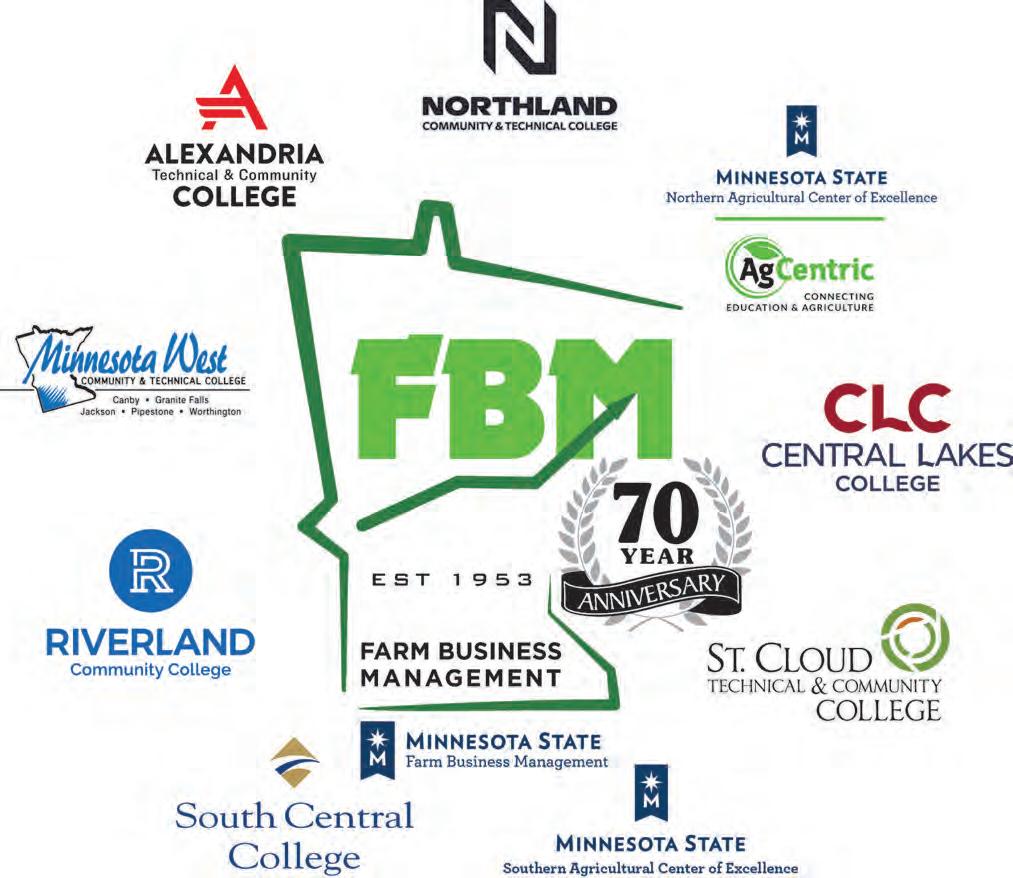

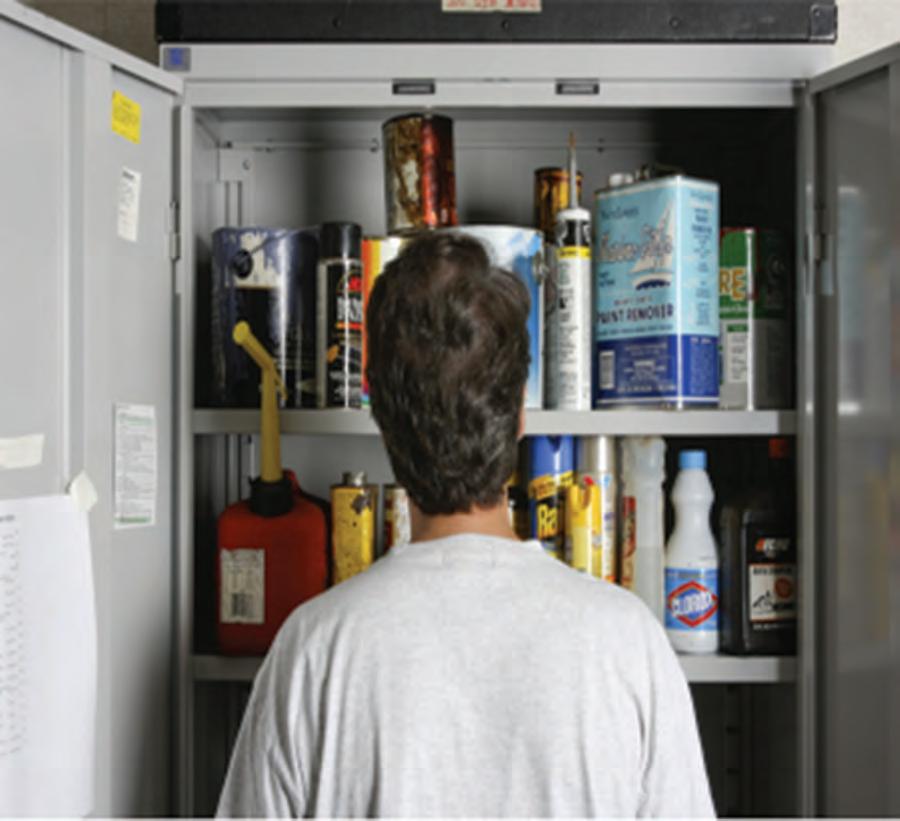


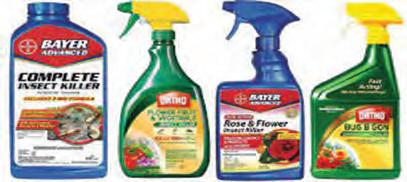
SPRING 2023 | SUP PLEMENT TO THE MOWER AND FREEBORN COUNTY SHOPPER Mechanic and electrician positions available Pay starting at $26.75 – $28.75 Forklift and Production positions available Pay starting at $20.60 Apply online www.HormelJob.com Come see us at the HIRING CENTER Hormel Foods is an equal opportunity employer. 1004 18th Ave NW (right across from Auto Zone) Open Hours: Wednesday: 8:00 am – 4:00 pm Thursday: 1:00 pm – 3:00 pm Friday: 9:00 am – 12:00 pm Phone: 507-396-2680
Hilltop Greenhouse and Farm has a love affair with flowers. Not just flowers that are placed in a vase, but all types of growing flowers and plants! They can be red, yellow, pink, orange or purple. How about green flowers, crazy striped flowers, flowers with spots even flowers that you have never seen before. This love of flowers keeps us searching for wonderful and exciting plants to grow each year.
We also love spreading that love to local communities. You will see Hilltop Greenhouse and Farm’s flowers hanging from baskets we plant for the City of Albert Lea, Alden, Austin and Glenville. In planters or in the gardens of Geneva, Hollandale and New Richland too. Or at local Cemeteries we deliver to just before Memorial Day.


Love of flowers starts in our greenhouses just North of Hollandale, in the coldest days of winter. Each day our family works to create a beautiful masterpiece. Starting seeds or small slips of plants that will carefully be grown into brilliant colors on healthy plants that will last
until frost. Planting stunning hanging baskets or mixed containers that will make your heart and head spin. This is what our customers love about our flowers.
We invite you to Hilltop Greenhouse and Farm’s annual Open House May 6, 2023 to enjoy the billions of colorful blossoms, shop the specials, enjoy refreshments, sign up for the free drawing and also get some expert advice on the best plants and flowers for your yard and garden. Follow, Like and Share with us on Facebook for Hilltop
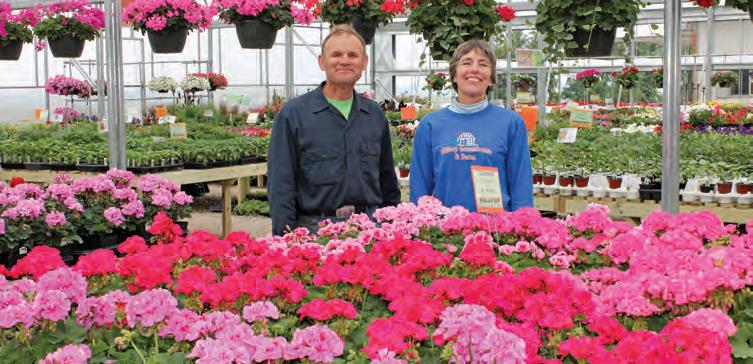

XDOUG’S PAINTING & SANDBLASTING • Farm & Industrial Equipment • In-Shop Painting • Interior & Exterior Refinishing/Painting • Staining Woodwork & Cabinets • New & Existing Commercial Buildings FREE ESTIMATES | DOUG, JASON & DAN EVANS 2190 S. Lincoln Ave. | Albert Lea, MN 56007 | 507.377.1508 fall ag tab 2018 1401 SE Broadway Albert Lea, MN 507-373-4164 S outhside ustom C 1401 SE Broadway • Albert Lea, MN • 373-4164 Full Service, Body & Mechanical Shop •Oil Changes • Tune Ups • Brake Work &more All insurance claims welcome S outhside ustom C 1401 SE Broadway, Albert Lea, MN 373-4164 •Offices •Apartment buildings •New &existing commercial const. •Farm &industrial equipment 377-1508 FREE ESTIMATES Doug,Jason & Dan Evans DOUG’SPAINTING & SANDBLASTING Full Service, Body & Mechanical Shop •Oil Changes • Tune-Ups • Brake Work And More - All Insurance Claims Welcome FREE INSURANCE ESTIMATES FOR THE LOVE OF FLOWERS
Greenhouse and Farm. Here you will find our specials, events and what we are up to each day!

Here’s a few highlights for the coming season:
• Retail Opens in Late April
• Open House-May 6th


• New Varieties for 2023



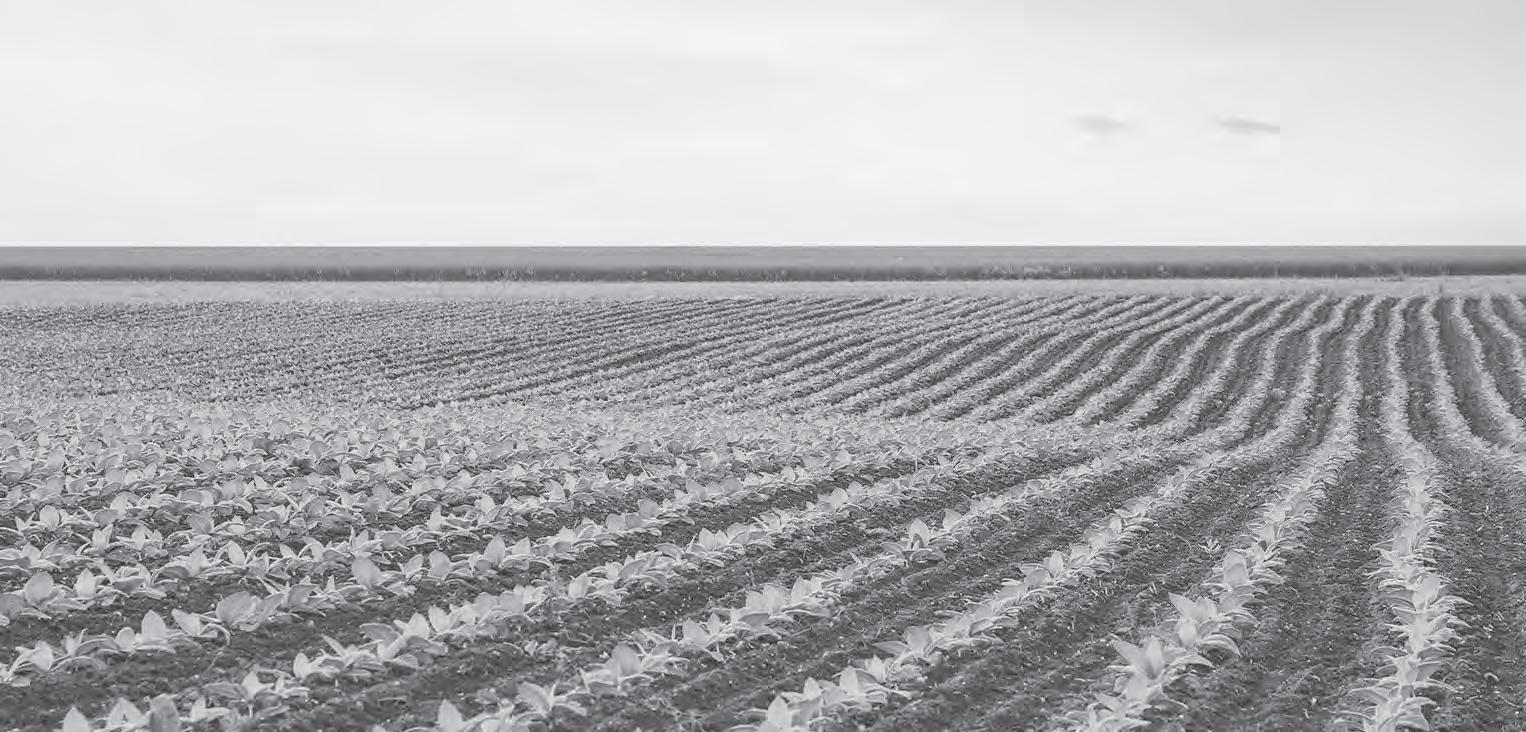

• Greenhouse organized for shade annuals, sun annuals, perennials, water plants, vegetable plants, fruit plants & trees, flowering shrubs.


Not in love with Flowers? We grow vegetable and herb plants too. Over 30 varieties of tomato plants, huge selection of peppers, cucumbers and more. Strawberry plants, Rhubarb, Asparagus grown just for your garden. The best varieties for our climate. And if you don’t want to grow them and only eat them, we have vegetable boxes each week thru our “Veggie Club or at our “Farm Market” during the growing season.
• Veggie Club (CSA) boxes are delivered to Albert Lea, Austin, Owatonna and at the Farm each week for 16 weeks of farm fresh produce.

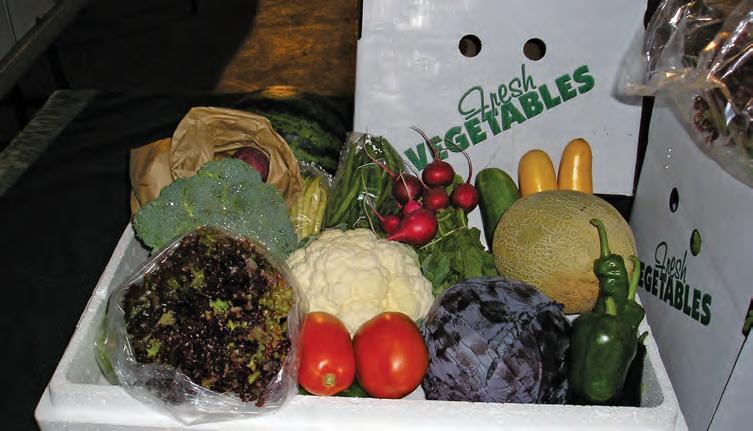
• Bulk orders for asparagus, tomatoes, pickling cucumbers, cabbage, green beans and more are welcome.
• In season produce sales at the farm are availablecheck Hilltop’s Facebook page or call to find out what is ready each week.
• More information on produce at www.hilltopgreenhouse.com

Take that short drive into the beautiful countryside. Enjoy a stroll around all of the flowers and plants in the greenhouse. Learn which are the best flowers and plants for your location and how to keep them blooming, growing and flourishing all season. You too will have a Love Affair with Flowers.

SPRINGTIME INSECTS IN HOMES
Katie Drewitz, Extension Educator, and Marissa Schuh, Extension Horticulture Integrated Pest Management Educator
Spring is here and soon the temperatures will begin to rise and stay warm. With the springtime increase in temperature, you may begin to notice insects in your home. Brown marmorated stinkbugs, box elder bugs, and multicolored Asian lady beetle are the common culprits along with cluster flies and sowbugs.
As the angle of the sun changes and the days get longer, these bugs
come out of their winter hiding spots. Fortunately, these insects are harmless, although they can be annoying, especially when many of them are present. Here are a few things to keep in mind when dealing with nuisance insects.
InjecTech DIesel
These are Last Year’s Bugs
First, it is important to know that these insects are not reproducing
3 Over 120 Different Rebuilt Exchange Fuel Pumps
3
Hwy. 65 N. • Northwood, Iowa 50459

AGRICULTURAL AUTOMOTIVE INDUSTRIAL Factory Trained Factory Authorized Diesel Fuel

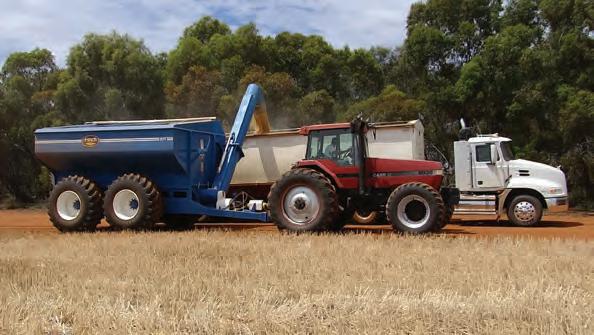
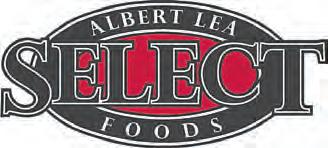
Authorized to provide warranty
Stanadyne, Delphi, Denso and
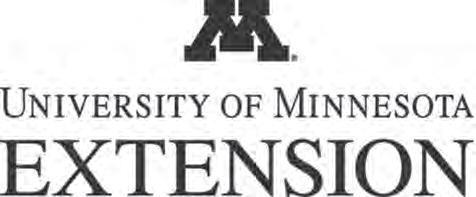

3 Over 120 Different Rebuilt Exchange Fuel
3 Over 30 Different Models of Exchange
3 Nozzles to Fit Most Popular
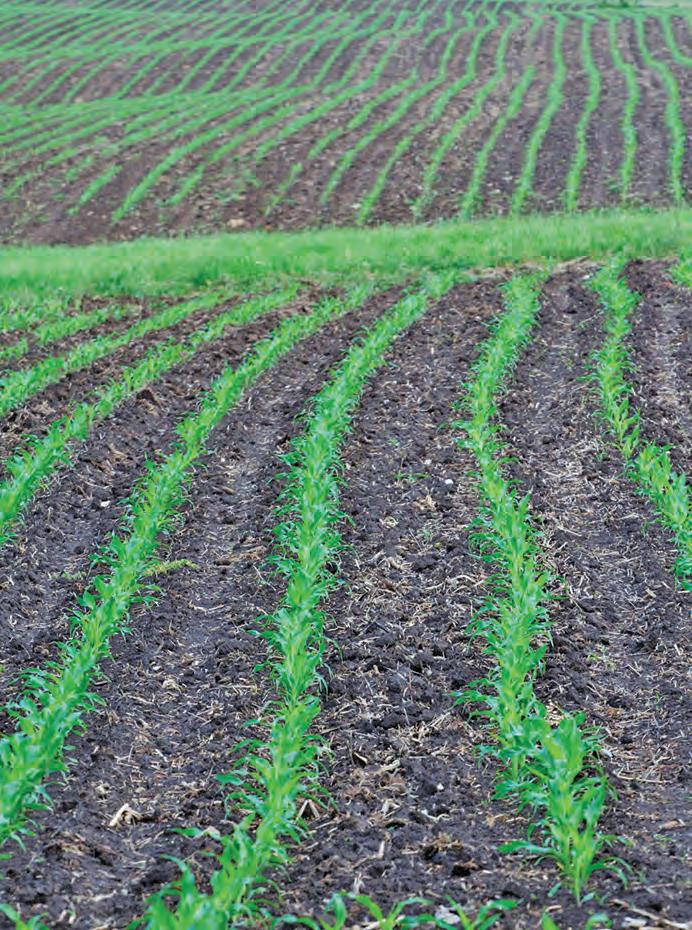
of Exchange Turbo Chargers
3 Nozzles to Fit Most Popular Models
WE SHIP DAILY
3 Over 30 Different Models of Exchange
Turbo Chargers
3 Nozzles to Fit Most Popular Models
SPRING 2023 | SUP PLEMENT TO THE MOWER AND FREEBORN COUNTY SHOPPER InjecTech D servIce Hwy. 65 N. • Northwood, Iowa 50459 641-324-2010 AGRICULTURAL AUTOMOTIVE INDUSTRIAL Factory Trained Factory Authorized Diesel Fuel Injection Service Authorized to provide warranty repair for Stanadyne, Delphi, Denso and ZEXEL 3 Over 120 Different Rebuilt Exchange Fuel Pumps 3 Over 30 Different Models of Exchange Turbo Chargers 3 Nozzles to Fit Most Popular Models WE SHIP DAILY InjecTech DIesel servIce Hwy. 65 N. • Northwood, Iowa 50459 641-324-2010 AGRICULTURAL AUTOMOTIVE INDUSTRIAL Factory Trained Factory Authorized Diesel Fuel Injection Service Authorized to provide warranty repair for Stanadyne, Delphi, Denso and ZEXEL 3 Over 120 Different Rebuilt Exchange Fuel Pumps 3 Over 30 Different Models of Exchange Turbo Chargers 3 Nozzles to Fit Most Popular Models WE SHIP DAILY InjecTech DIesel servIce Hwy. 65 N. • Northwood, Iowa 50459 641-324-2010 AGRICULTURAL AUTOMOTIVE INDUSTRIAL Factory Trained Factory Authorized Diesel Fuel Injection Service Authorized to provide warranty repair for Stanadyne, Delphi, Denso and ZEXEL 3 Over 120 Different Rebuilt Exchange Fuel Pumps 3 Over 30 Different Models
InjecTech DIesel
Models WE SHIP DAILY InjecTech DIesel servIce
AGRICULTURAL AUTOMOTIVE INDUSTRIAL Factory
Diesel
Service
warranty
Stanadyne,
Exchange Turbo Chargers
Nozzles
Fit Most Popular Models WE SHIP DAILY InjecTech DIesel servIce
• Northwood, Iowa 50459 641-324-2010 AGRICULTURAL AUTOMOTIVE INDUSTRIAL Factory Trained Factory Authorized Diesel Fuel Injection Service Authorized to provide warranty repair for Stanadyne, Delphi, Denso and ZEXEL 3 Over 120 Different Rebuilt Exchange Fuel Pumps 3 Over 30 Different Models of Exchange Turbo Chargers 3 Nozzles to Fit Most Popular Models WE SHIP DAILY InjecTech DIesel servIce Hwy. 65 N. • Northwood, Iowa 50459 641-324-2010 AGRICULTURAL AUTOMOTIVE INDUSTRIAL Factory Trained Factory Authorized Diesel Fuel Injection Service Authorized to provide warranty repair for Stanadyne, Delphi, Denso and ZEXEL 3 Over 120 Different Rebuilt Exchange Fuel Pumps 3 Over 30 Different Models of Exchange Turbo Chargers 3 Nozzles to Fit Most Popular Models WE SHIP DAILY
Hwy. 65 N. • Northwood, Iowa 50459 641-324-2010
Trained Factory Authorized
Fuel Injection
Authorized to provide
repair for
Delphi, Denso and ZEXEL 3 Over 120 Different Rebuilt Exchange Fuel Pumps 3 Over 30 Different Models of
3
to
Hwy. 65 N.
Hwy. 65 N. • Northwood, Iowa 50459 AGRICULTURAL AUTOMOTIVE INDUSTRIAL Factory Trained Factory Authorized Diesel Fuel Authorized to provide warranty Stanadyne, Delphi,
Denso and
Fuel
3 Over 120 Different Rebuilt Exchange
3 Over 30 Different Models of Exchange Turbo
Popular
WE SHIP DAILY
Over 120 Different Rebuilt Exchange Fuel Pumps
3 Nozzles to Fit Most
Models
3
30 Different Models of Exchange Turbo Chargers
3 Over
Nozzles
Fit Most Popular Models
to
indoors. Though they may peak out of their hiding places throughout the winter and early spring, these are not offspring emerging. In fact, all of the insects you see now entered your home last fall.
They hibernate in balls or clusters in wall voids, attics, and similar areas. As the temperatures warm, the insects in the wall layer closest to your living room, for example, become active first and come out into your home. They do not all become active at the same time.
What
are they up to?
The screen that in the fall kept boxelder bugs out now keeps them inside the home.
The insects are hungry, they haven’t eaten since the last calendar year, and are starting to get signals that are telling them it is time to head outside. Once outside, they will go feed on plants (in the case of stinkbugs and box elder bugs) or pest insects (in the case of multicolored Asian lady beetle). But many of these insects won’t be able to escape your home.
Vacuum them up
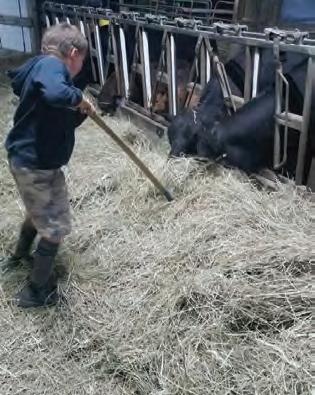
Since these insects are coming from hidden sites, it is not practical to treat them to prevent their emergence. Once they are out in the open, the best way to deal with them is physical removal, such as vacuuming. Eventually, all these overwintering insects will become active and move away from their overwintering sites.
Keep them from coming back in
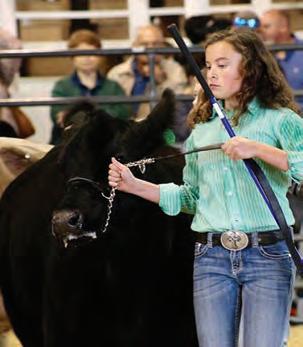
To minimize this problem in the future, it is important to treat for these insects in the fall as they are first trying to enter your home. This is a two-pronged approach.


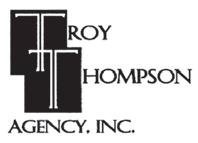
Inspect the outside of your home during summer and seal spaces and gaps that may be used by insects to get inside.
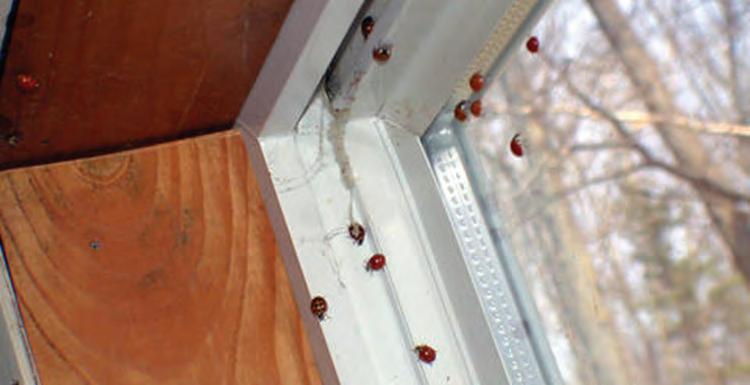



Follow up with an insecticide application to the outer perimeter of your home in the fall, just as these insects are trying to get inside.
It is not possible to prevent all nuisance insects from entering into a home, but you can reduce the number, causing fewer headaches later during the winter and spring.


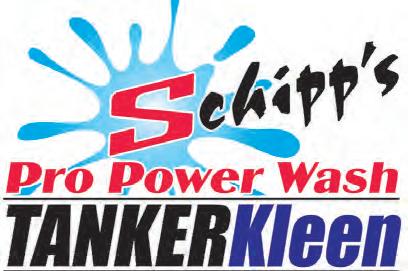


 Multicolored Asian ladybeetles seeking warm sunlight and trying to get outside
Multicolored Asian ladybeetles seeking warm sunlight and trying to get outside

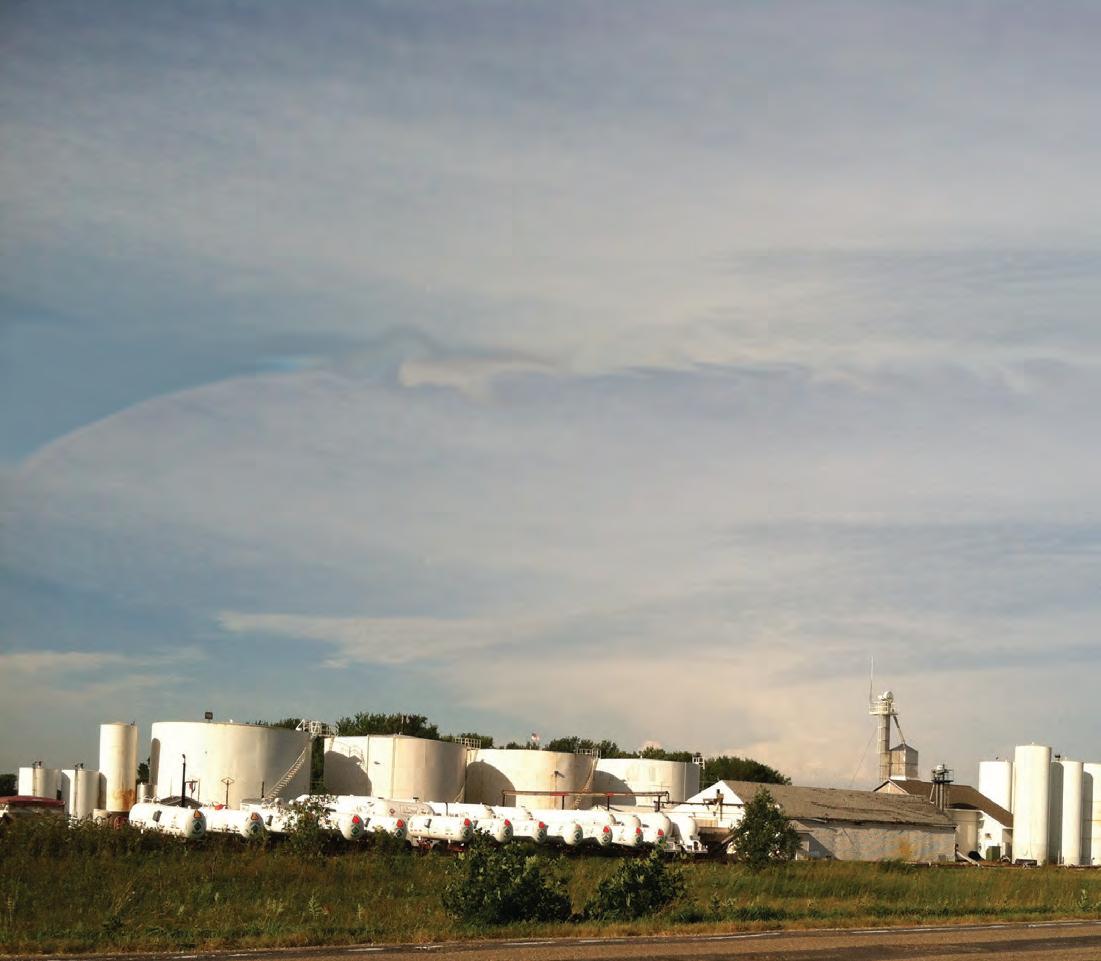

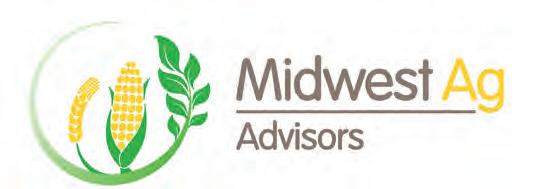
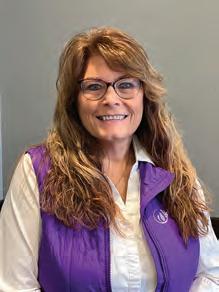


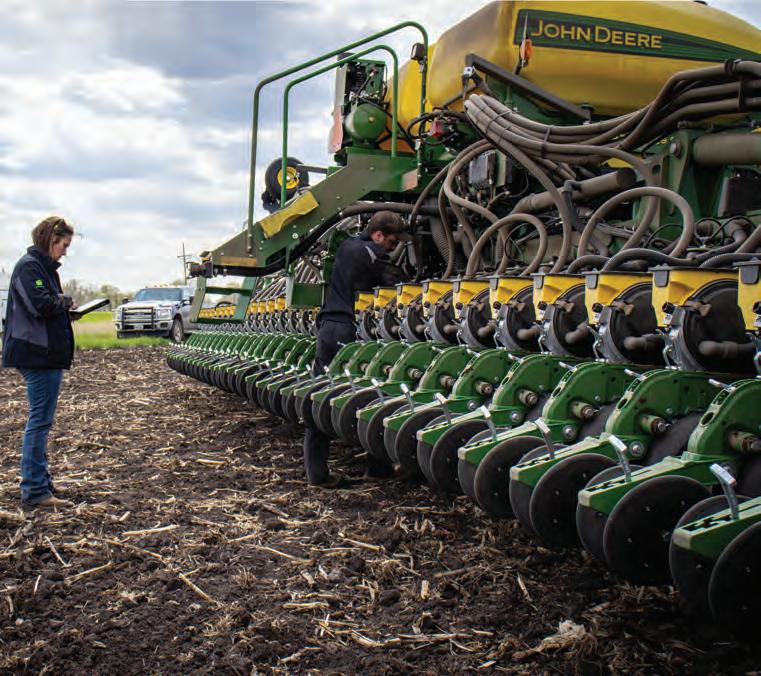
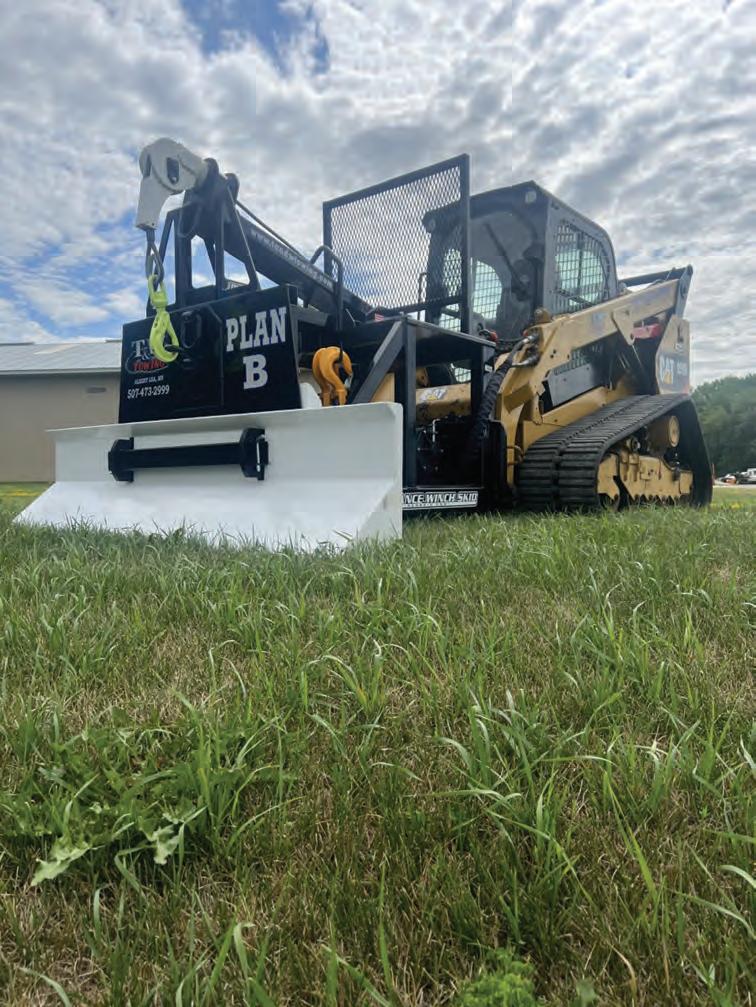
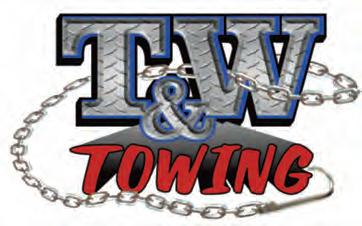
See us for all your LP Gas needs - Kevin Reed Hi Yield Products Inc. 23282 620th Ave • Alden, Minnesota 56009 Bus: (507) 874-3750 Cell: (507) 383-0874 Email: kevin@hiyieldmn.com We do installation, leak detection, and testing. We can help with your fertilizer and chemical needs. We also offer variable rate fertilizer. Want to help support local farmers? NOW HIRING SERVICE TECHS! In-store training programs available for the right candidates. In your field or in our shops, during the off-season or when it’s “go time” — we’re here to inspect, repair, or upgrade your equipment to best fit your needs. Northwood | 641-324-1154 ww w.KibbleEq.com Hollandale | 507-889-4221 Osage | 641-732-3719
Ag and Food Science Programs
In the field or in the lab our innovative ag and food science programs provide students of all ages the training and education needed to become part of the fifth highest ag producing state in the nation. Learn more at riverland.edu/ag
Current programs include:





Agribusiness
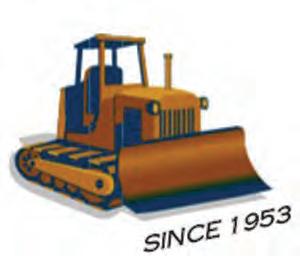

Agricultural Sciences

Biotechnology
Food Science
Precision Agriculture
Internship Options


641-715-1203
AreaLocations: Randalia•Sumner•Maynard Oelwein•Elgin•Rudd MarbleRock•Rockford Manly•Grafton•Northwood Carpenter•Myrtle•London
Agronomy•Energy Feed•Grain “Committedtobe thefull-service providerof choice, enhancingthe successof ourcustomers, team,and communities.”

R
www.viafield.com
MINNESOTA G R O WINGTHEFUTURE - ONE STUDENTAT A T I M E AGRICULTURE
FREEBORN COUNTY FARM FAMILY OF THE YEAR 2023 AARON & TAMMY CECH FAMILY
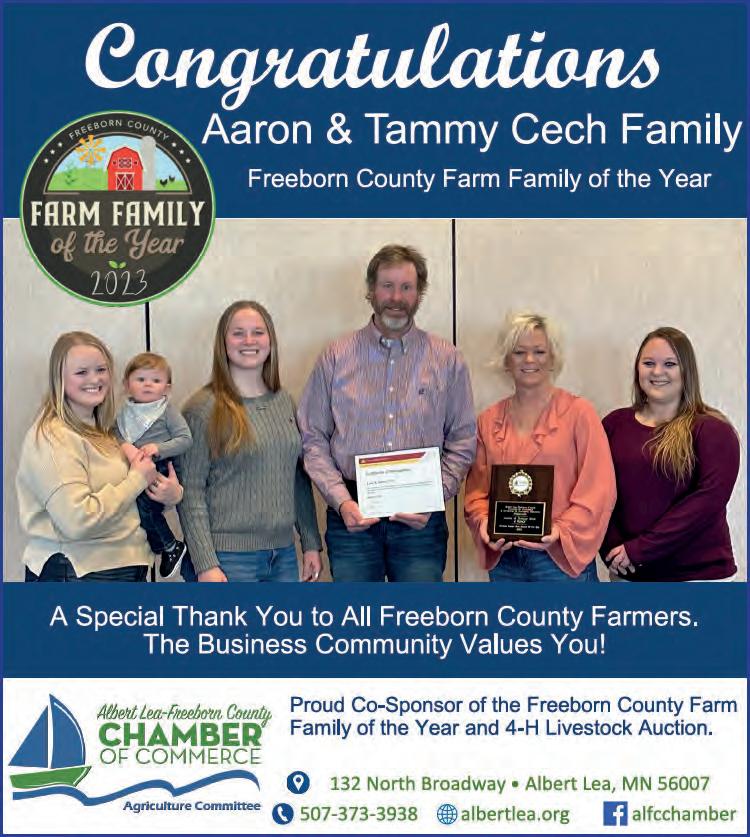
The annual Agricultural Luncheon has been a tradition for over 40 years! As part of this annual gathering, the Albert Lea-Freeborn County Chamber of Commerce Agriculture Committee and the University of Minnesota Extension service recognize a “Farm Family of the Year” each year.
To be nominated, the Farm Family must be Minnesota food producers actively involved in agricultural production with one or more agricultural enterprises or have made significant short-term progress and/ or innovative contributions with their agricultural endeavors. Winners are selected based on their commitment to enhancing and supporting the fields of agriculture and production and their involvement in their communities and/or related organizations.


This year the Aaron (and Tammy) Cech family was selected and celebrated as the 2023 Farm Family of the Year! The Cechs live north of Myrtle, where they raise corn, soybeans and hogs. They come from a multigenerational farming family that is active and wellknown in the community.
Aaron and Tammy are both active members and volunteers for Bethlehem Lutheran Church in Myrtle; they are both are members of the Bohemian Brick Hall Board of Directors; and, both have been very active in the 4-H community for many years. Aaron also serves on the Volunteer Fire Department in Myrtle.
Aaron and Tammy have three children and one grandson. Aaron and Tammy’s daughter Payton has started taking an active role in the family operation, to carry on for the next generation.
SPRING 2023 | SUP PLEMENT TO THE MOWER AND FREEBORN COUNTY SHOPPER
1 spot Farm Tab Fall 2017 ESTATE PLANNING WILLS ~ TRUSTS & LEASES 108 North Main St, Austin ~ 507-433-2393
Goals for the farm bill:
To keep food prices fair for farmers and consumers, ensure an adequate food supply and protect and sustain the country’s vital natural resources – originally in response to the economic and environmental crises of the Great Depression and the Dust Bowl. Farm bill “titles” include:
1. Commodities: support for major crops: corn, soybeans, wheat, peanuts, rice, dairy and sugar, as well as disaster assistance.
2. Conservation
3. Trace
4. Nutrition
5. Credit
6. Rural Development
7. Research, extension and related matters
8. Forestry
9. Energy
10. Horticulture

11. Crop Insurance

12. Miscellaneous: programs/ assistance for livestock and poultry production; support for beginning farmers and ranchers and other miscellaneous provisions. What will the Farm Bill address for buyers, sellers, and investors of land?
• Remove uncertainty from ag, nutrition, conservation programs and move away from ad hoc disaster aid. It would also address the rising costs farmers and ranchers are facing today.
• Expiration of the farm bill would leave some programs with no authorization, while others would revert
2024 FARM BILL – WHAT IS IT?
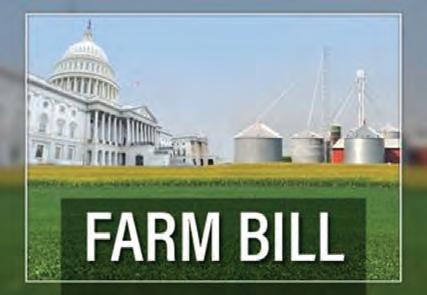
WILL IT MEAN FOR BUYERS, SELLERS AND INVESTORS OF LAND?
WHAT
Terri Jensen, ALC (Accredited Land Consultant) Broker, National Land Realty: 507-382-0908
to archaic permanent laws established before 1950. Some of the programs that would expire would include the nutrition assistance and farm commodity support programs. Crop insurance has permanent authority and does not need reauthorization, but which needs to be made more accessible to farmers. For example, approximately 45% of corn acres in PA are not insured, so farmers are on the hook for costs if their crops fail due to climate, trade or other disasters.
• The farm bill would help address some of the headwinds facing agriculture today: climate issues (like drought); labor shortages; costs of labor, fertilizer and other inputs which are on the rise; energy issues; transportation.
• Ability of the US to sell its products globally…..
Current policy has been for ad hoc spending for emergencies due to trade and pandemic shocks. The 2024 farm bill could address this issue so that ad hoc spending would not be necessary or too late to help farmers and ranchers dealing with emergencies due to trade or pandemic shocks. With ad hoc assistance, producers and their lenders have no idea what assistance will be available, or which programs they will be eligible for when a disaster strikes. This is extremely inefficient and can result in farmers/ranchers going bankrupt if assistance is untimely.
The Farm Bill provides a safety net for farmers through increased focus on conservation and climate benefits; diversification of income
(wind, solar, carbon sequestration, biofuels; as well as specialty crops; focus on all levels of farming – from large to smaller farms/farmers.
The insufficient current reference prices for corn, soybeans, wheat, etc., do not provide a safety net for farmers at this time; reference prices are not at breakeven prices at this time.
More conservation programs would be available that offer incentives to farmers and ranchers for conventional and organic farming; specialty crops and commodity crops; forestry and wildlife; and livestock operations.
Hopefully, then, for farmers, ranchers, investors, and rural landowners, the 2024 farm bill will positively impact land, rural communities, energy, trade, conservation, etc. It will potentially eliminate some of the stress and uncertainties with disaster, trade or pandemic assistance; global trade; energy and input costs; rural infrastructure to enable rural communities to thrive and encourage young people to farm and be able to live in rural areas that offer daycare, schools, transportation, etc. This bill has a lot riding on it given today’s economic and political climate.
SOIL HEALTH: NEW FUNDING OPPORTUNITIES AVAILABLE
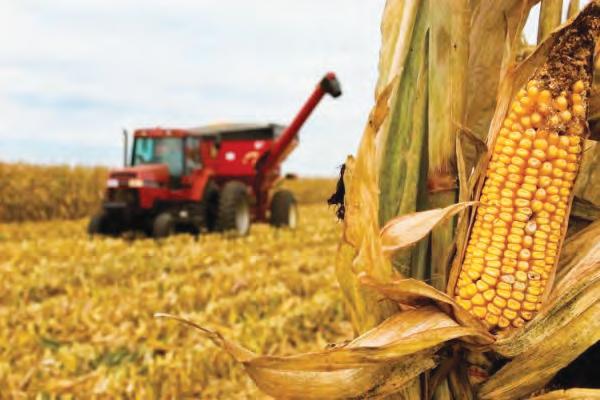

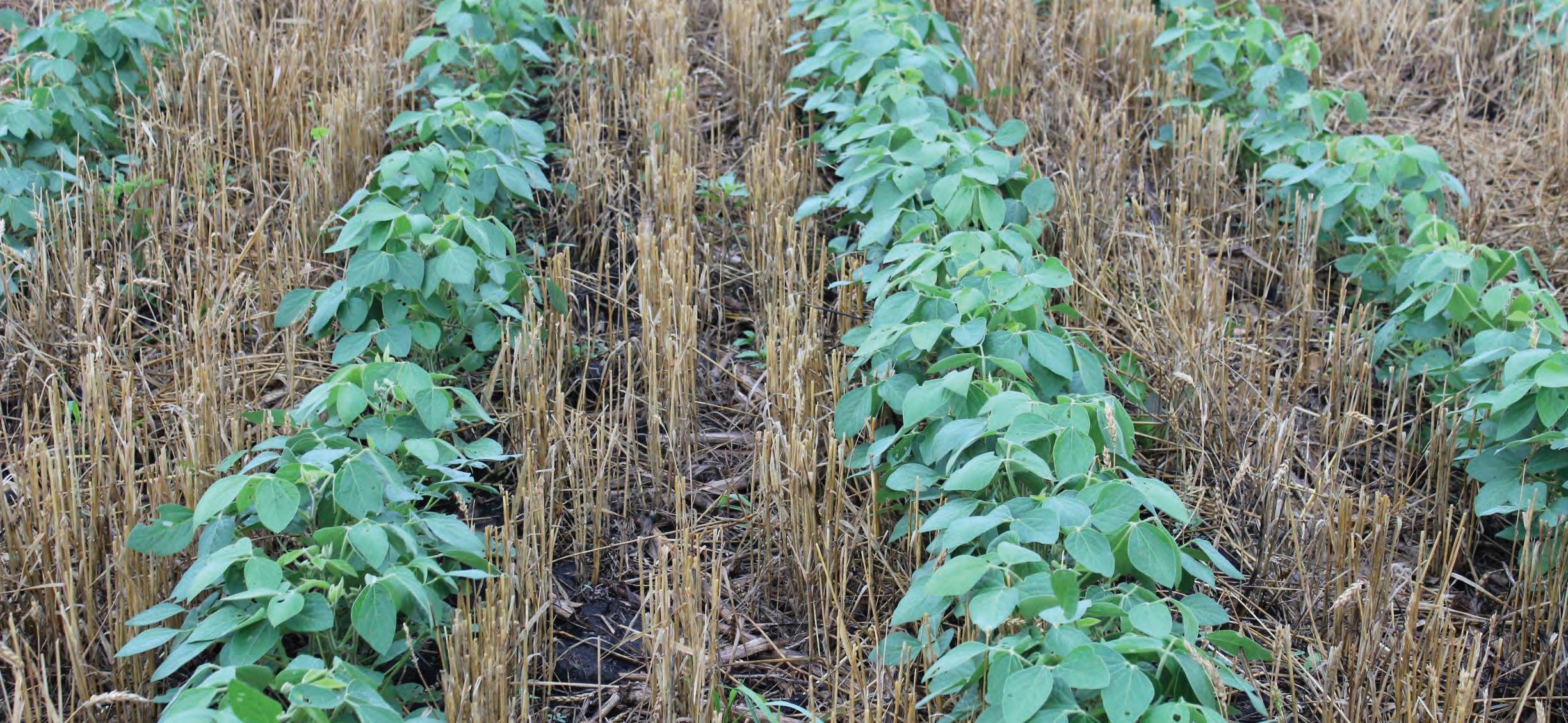

County Soil and Water Conservation District at 507373-5607 to see if your ground qualifies for this funding opportunity.
Check Dexter Elevator & LP, Inc

Dexter, MN • 507-584-6422 • LP Gas • Hubbard Feed • On Sight Grain Pick-up
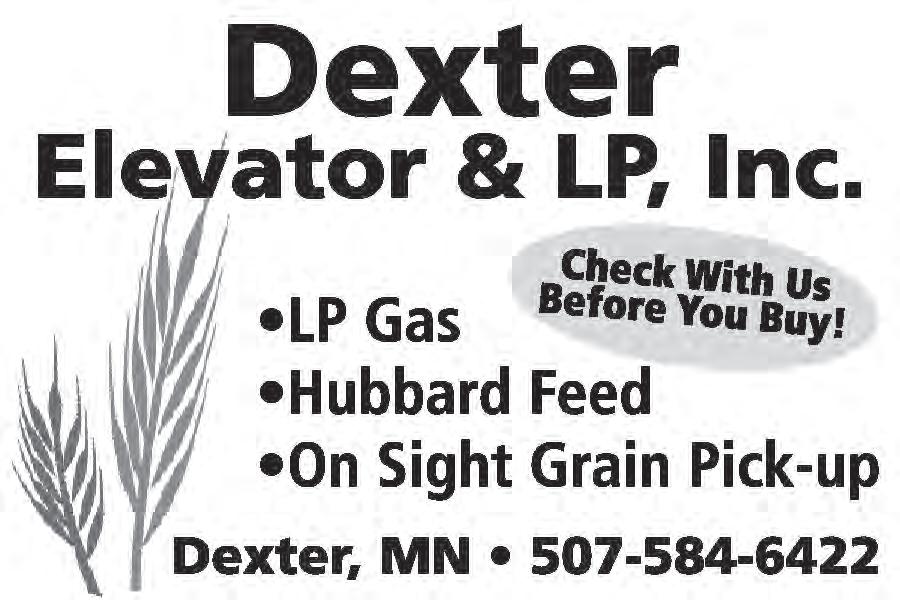
Over the past few years, new funding opportunities for our area have become available for producers who are interested in implementing soil health practices. Funding from the Board of Water and Soil Resources is available to implement cover crops ranging from 1 to 3-year contracts, as well as having single or multi-species options available. With this funding source, the out-of-pocket expense on the producers is reduced, if not fully paid for. If you think you are interested in starting soil health practices, but are not sure if you want a long-term commitment, call the Freeborn

1/16 pg
1/8 pg
If you have any other questions or would like to work with members of the team to implement practices such as waterways or water and sediment control basins, please contact your local Soil and Water Conservation District or search on Facebook for “Freeborn Area Soil Health Team”. Following on Facebook will also keep you informed with local events and workshops.
Fun ‘17

Summer Fun ‘19 With Us Before You Buy!
Summer
The Freeborn Area Soil Health Team is a group of local farmers, agency staff, and agricultural business professionals that was formed in 2013. Each year the team strives to facilitate local collaboration that encourages, educates, and demonstrates how to improve soil health and water quality while improving productivity, profitability, and sustainability of natural resources. Throughout the year, the group hosts field days, workshops, and tours as a way to increase education on soil health principles.
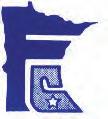
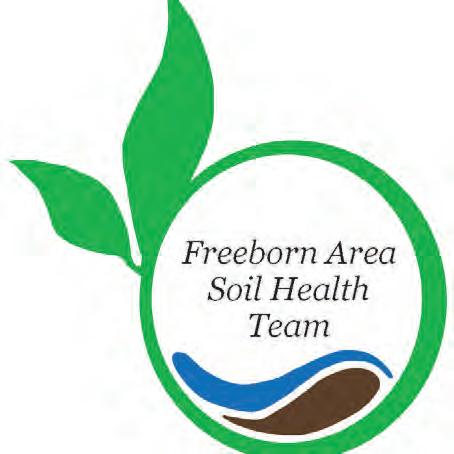
Here are some Natural Resource Conservation Service fast facts about soil health:
• Crops which winter-kill at 5-20 degrees include oats, barley, berseem clover, Lana vetch, purple vetch, and fodder radish.
• Healthy soil is made up of about 45% minerals, 25% water, 25% air and 5% organic matter.

• One teaspoon of healthy soil contains 100 million – 1 billion individual bacteria.

• It takes 500 years to form 2cm of topsoil.
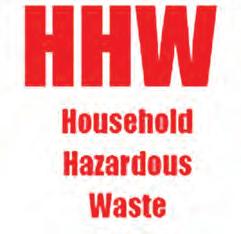
MINNESOTA FARMERS’ BOTTOM LINES REMAIN STRONG DESPITE CHALLENGING YEAR
Minnesota farms saw continued financial improvement in 2022, despite global uncertainty, inflationary pressures and lingering drought conditions across much of the state. Crop yields were above trendline even with the difficult growing conditions. With strong prices throughout the year for the state’s major commodities, Minnesota farms were able to improve their financial position in preparation for expected economic challenges in 2023.
Median net farm income for Minnesota farms reached $179,728 in 2022. This was another year of improved profitability after challenging financial years from 2013 to 2019. This profitability level was an 8 % increase over the previous year and when adjusted for inflation, 2022 farm profits were the second highest among the historical records. The average Minnesota farm saw continued improvement in working capital and retained earnings. Repayment capacity, solvency, and financial efficiency performance remained strong.
“There was much uncertainty going into the 2022 production year for Minnesota farms. The dry conditions, inflationary pressures, and market volatility were all top of mind for Minnesota producers,” said Pauline Van Nurden of the University of Minnesota’s Center for Farm Financial Management. “Many Minnesota farms used risk management techniques to lock in profits by marketing their commodities and securing inputs before costs soared. This will be harder to do in the coming year.”
This analysis includes 2,131 participants in the Minnesota State Farm Business Management programs and 109 members of the Southwest Farm Business Management Association. Participating farmers represent about 12% of Minnesota’s farms
with gross incomes over $250,000 annually.



The data is collected by a database called the FINBIN. The FINBIN not only provides data for traditional commodity agriculture but several special initiatives in recent years are helping to address big questions in Minnesota agriculture. A beginning farmer program has aimed to help with farm transition; an organic benchmarking program is analyzing the profitability of these farms; and decision tools are being developed to help address the questions related to climate smart agriculture.
“We are excited to dig into the economic impact of cover crops. We hope to expand the findings of this project over time, by tracking acres using cover crops over several years to learn more about the economic impacts of this production system. These are big questions on the minds of farmers today. We hope to help inform the decision making process for Minnesota farmers,” said Keith Olander of the Minnesota State Northern Agricultural Center of Excellence.
SPRING 2023 | SUP PLEMENT TO THE MOWER AND FREEBORN COUNTY SHOPPER
When growers follow research-based strategies for planting corn in Minnesota, they position themselves to maximize yield and economic return.
CORN GUIDELINES, BEST PRACTICES AND POTENTIAL ISSUES
Corn grain and silage Corn planting best practices When to plant corn
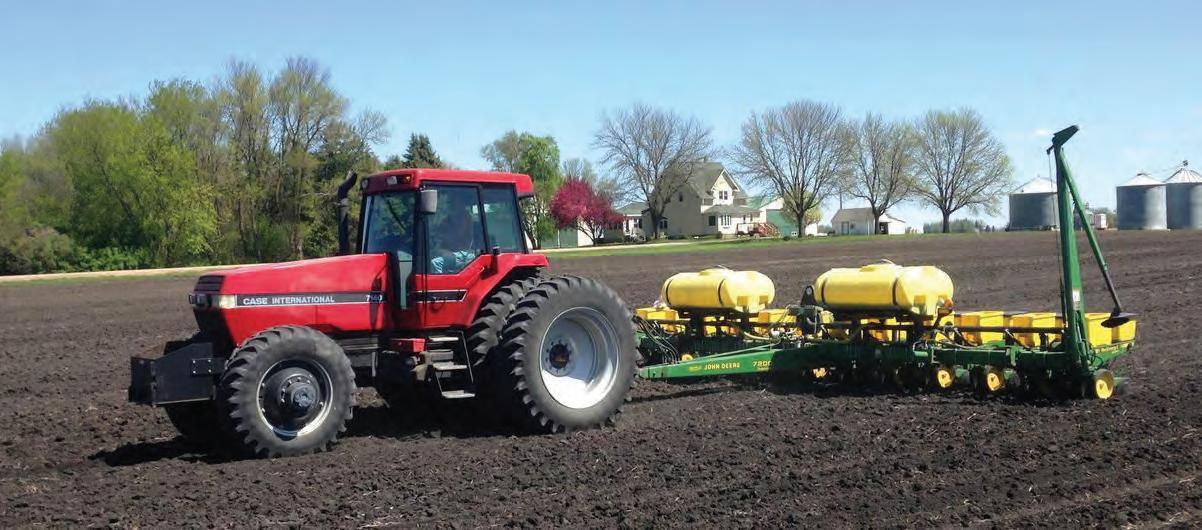
Timely planting in good soil conditions is essential for successful corn production.
View guidelines about when to plant corn in Minnesota, which includes:
· The optimum planting dates to maximize corn yield.
· How to manage delayed planting.
· Risks of early planting.
Optimal plant population
To maximize profit, research shows Minnesota growers need a final stand of 32,000 to 34,000 plants per acre. There are a number of factors that affect the final plant population and profit, including:
· Seed costs and corn price.
· Planting date.
· Row spacing.
· Hybrid relative maturity.
· Yield potential.
· Light intersection.
Row width considerations
Producing corn in narrow rows can increase grain yield as much as 7 to 9 percent in Minnesota. However, narrow rows don’t always pay off. Researchers have evaluated the factors that affect success with narrow-row corn planting, including:
· Minnesota region.
· Plant population.
· Machinery costs.
· Whether the crop will be used for grain or silage.
SPRING 2023 | SUP PLEMENT TO THE MOWER AND FREEBORN COUNTY SHOPPER
DAIRY LIVESTOCK TECHNOLOGY
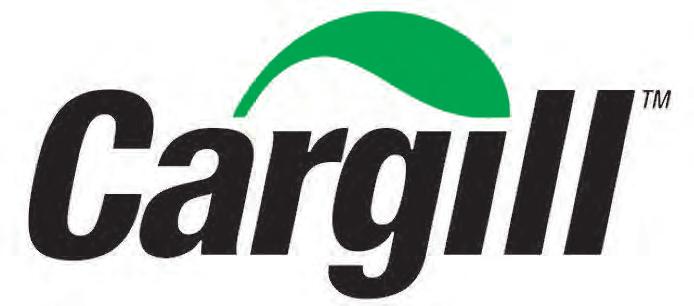
Like many beginning farmers during the 1960’s, my parents had to make do with the outdated resources that were affordable such as the use of milk cans and a can cooler for the storage and cooling of the harvested milk from the dairy cows. Whereas the more advanced dairies were installing a pipeline for the transportation of the harvested milk to a bulk tank for the storage of milk. At that time the average dairy herd size was 26.8 cows with an average production of 10,693 pounds of milk per cow.
During the 1970’s there were a significant number of Harvestor and stave silos being built on dairy and beef farms for the storage of fermented feed to be fed to the ruminant livestock. Silos allowed for the alfalfa hay to be harvested more quickly and in most instances of better feed quality than baling it as dry hay. Better feed quality results in improved production of milk and beef. The average dairy herd size was 37.7 cows with an average production of 11,782 pounds of milk per cow during the mid-1970’s.
The 1980’s saw the introduction of the total mixed ration
which allowed for mixing all the livestock feed ingredients into a total ration. There was also the installation of computer feeders in tie stall barns where the feeder traveled on an overhead track and would several times during the day drop a programed amount of concentrate and grain in front of each cow on top of the forages that was already in front of the cow. Young dairy calves were starting to be grown outside in individual wooden huts or circular polydomes to reduce the mortality rate that was common when raised inside the same barn as the lactating cows due to poor air quality and the calves being housed together. The whole herd dairy buyouts during the mid-1980’s accelerated the declining number of dairy farms in Minnesota. In addition, the closer a dairy was located to Eau Claire, WI the lower the price was paid for milk produced in the federal milk order system. The average dairy herd size was 55.4 cows with an average production of 14,695 pounds of milk per cow during the mid1980’s.
Free stall barns with curtain side walls for natural ventilation including center drive through feeding became the state of art product during the 1990’s for the housing of dairy cows. The original free stall barns were lacking lot of cow comfort items that are implemented in today’s barns. Compost barns were also introduced as an alternative to the more upfront cost construction of individual stall free stall barns. The compost barns required a lot of sawdust bedding and daily tilling of the compost pack to keep the bedding pack in better quality for the udder health of the lactating cows. Bunker silos were being promoted as a better alternative to upright silos for the means of storing forages. The average dairy herd size was 65.8 cows with an average production of 17,622 pounds of milk per cow during the mid-1990’s.
The 2000’s saw the introduction of robotic milking in Minnesota. As with any new technology there were challenges that need to be corrected to make it work better. The average dairy herd size was 117.3 cows with an average production of 20,652 pounds of milk per cow during the mid-2000’s.
A few days ago, I had the privilege of observing a dairy system that was highly automated. The cows are housed in a cross ventilated free stall barn with each stall having a foam mattress with a waterbed to provide a comfortable lying surface for the cows. Dairy cows that have a comfortable surface to spend lying down and ruminating produce more milk. The fans are on one wall and the curtains are on the other wall that automatically adjust to provide the preferred ventilation for the comfort of the cows. The cows enter the individual automatic milking
SPRING 2023 | SUP PLEMENT TO THE MOWER AND FREEBORN COUNTY SHOPPER
stalls on their own schedule. There are several automated manure vacuums that clean the areas where the cows deposit manure. The cows are fed by an automatic feeding system. The feed is automatically measured and placed into a feed mixer that proceeds to place the feed in the areas of the barn where the feed is in short supply while also pushing the feed up in the areas where a sufficient quantity exists.
The 2022 Farm Business Management Analysis shows the average dairy herd size is 274 cows with an average production of 25,485 pounds of milk per cow. The larger cow herds overall have higher milk production per cow and higher net return over direct and overhead cost per cow. According to the 2022 data, robotic dairies had a net return of $898.67 per cow in comparison to non-robotic two times per day milking system with a net return of $542.10.
In agriculture we need to utilize the current technologies when the
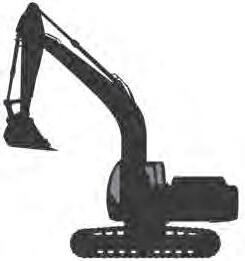
technologies are cost effective to improve the farm business long term viability. Especially with livestock infrastructure, the economic life needs to be taken into consideration. In many instances the livestock equipment and building assets becomes significantly outdated to merit continuing its use for producing livestock or milk. The livestock equipment and buildings need to be thought of as being sunk assets that will have very little or a negative value at the end of its economic life. As we drive through the countryside there are a significant number of empty silos or vacant metal livestock buildings that are no longer being used. Eventually many of those structures will need to be removed and there is a cost associated with the removal.
It is great that we have entrepreneurs willing to take the risk of utilizing new technologies and build the needed infrastructure especially in the livestock industry. The economic impact on the local community is greater with strong
livestock production in the immediate area in comparison to crops only production.
Riverland Community College
Southland | Suite A206
1700 3rd St SW, Austin, MN 55912 507-320-8193

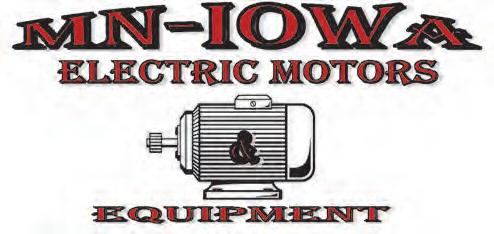
lynn.hoffmann@riverland.edu
A member of Minnesota State

SPRING 2023 | SUP PLEMENT TO THE MOWER AND FREEBORN COUNTY SHOPPER
Lynn Hoffmann
Farm Business Management Instructor
FREEBORN COUNTY 4-H ACTIVITIES AND ADVENTURES

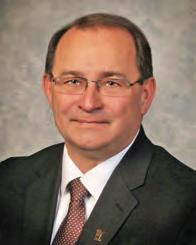
Freeborn County 4-H is off to a fun and exciting start to this year. Bringing more activities and adventures to the youth in the county and beyond.
At the beginning of the year, Freeborn 4-H set the goal of hosting 10 project workshops for youth in our county. These workshops give youth the opportunity to try and create something new or learn a new skill. The youth are doing the creating and learning right there with their own hands. Creating a project they will get to take home with them and learning a skill they can build upon. They are given the tools to take home with them and challenge to use their new skills and create something new.
During our cocoa bomb project workshop youth got to make over five different flavors and combinations of
cocoa bombs. They got to bring home a mold and brush with them to create new flavors and combinations at home. That is just one example. We’ve done painting with different mediums, created needlework applique on dish towels, transformed paper into animals with the art of origami and needle felting taught us to turn felt into whatever we can imagine. With all of these workshops they were sent home to tools and knowledge to continue their learning and discovering.
We have even more project workshops coming up this spring. This month youth of all ages get to come together and learn to sew, make their very own fishing pole, learn all about electricity and create small electric cars, learn how to make paper and learn the art of printmaking. Although the learning does not stop there. Agriculture and animals serve as a huge interest to many 4-H participants. We are also hosting project workshops for our animal projects too.
Most recently we have hosted the Bunny Barn Series. This series is for youth interested in rabbits. It has virtual and in person components. Out of the 87 counties in Minnesota we connect over 20 of these counties. Youth were able to participate in the first virtual session on April 5th. There will be four more virtual sessions and two more in person sessions coming up in May, June and July. It is extremely exciting to share so much knowledge of rabbits with youth across the state.
Coming up we will be hosting a Pigeon information night on April 24th learning all you need to know about having pigeons as a 4-H project and where to get pigeons for the fair. This summer we will also be hosting a livestock daycamp for market sheep, market goats and swine. Learning about how to properly feed them, get them ready for show and showmanship techniques.
All of these workshops could not be done without the support and knowledge of many of our volunteers who have stepped up and helped teach and share their passions with the youth in our community. THANK YOU TO ALL OF OUR VOLUNTEERS!
SPRING 2023 | SUP PLEMENT TO THE MOWER AND FREEBORN COUNTY SHOPPER
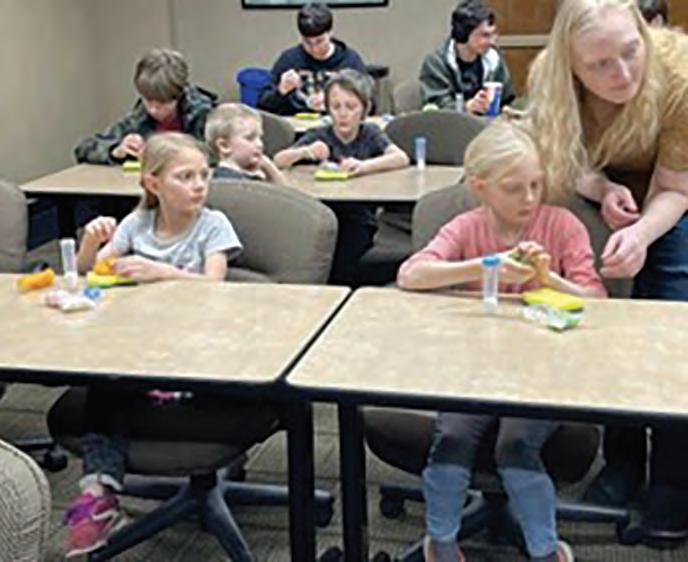
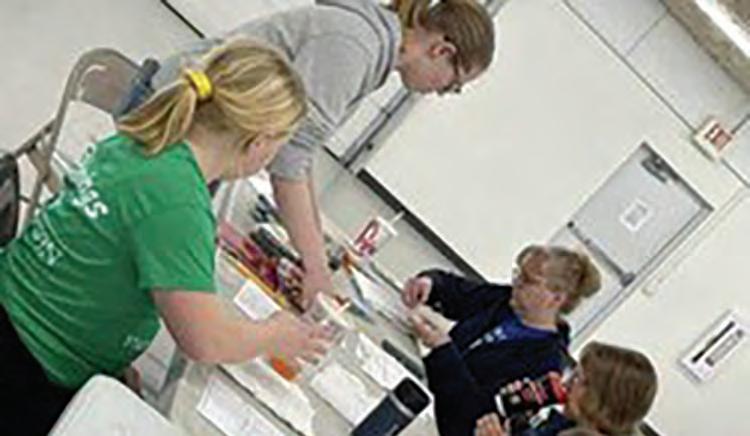
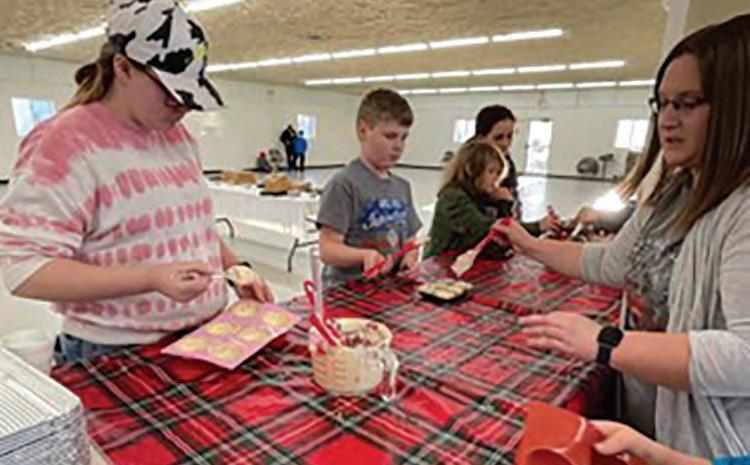
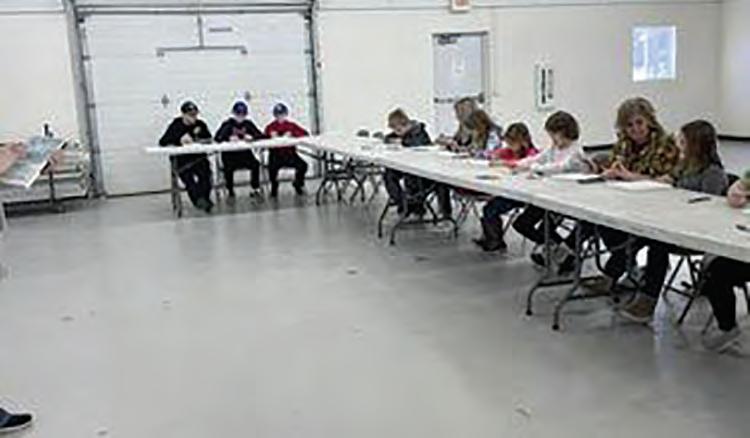
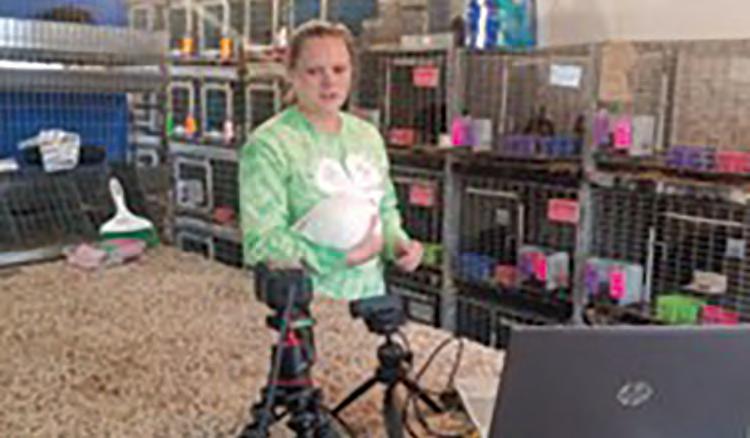
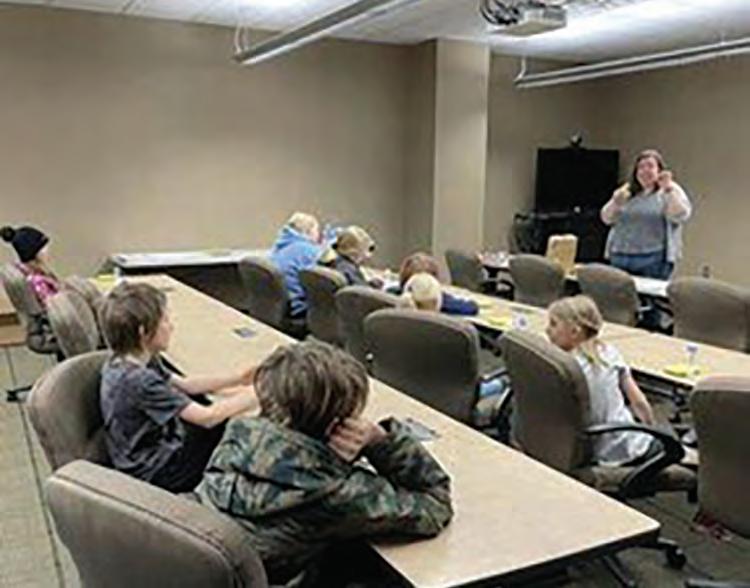
SPRING 2023 | SUP PLEMENT TO THE MOWER AND FREEBORN COUNTY SHOPPER
Freeborn County 4-Hers learning how to needle felt.
4-Hers learning from a volunteer how to complete needle work on a dishcloth.
4-Hers brushing melting chocolate into molds to make their own cocoa bombs.
4-H Volunteer teaching youth about painting with different mediums.
A behind the scenes look of Freeborn County 4-H Educator, Lexie Ignaszewski, hosting Live from the Bunny Barn for Minnesota 4-Hers across the state.
A Freeborn County 4-H Volunteer teaching the techniques and tricks of needle felting at a project workshop.
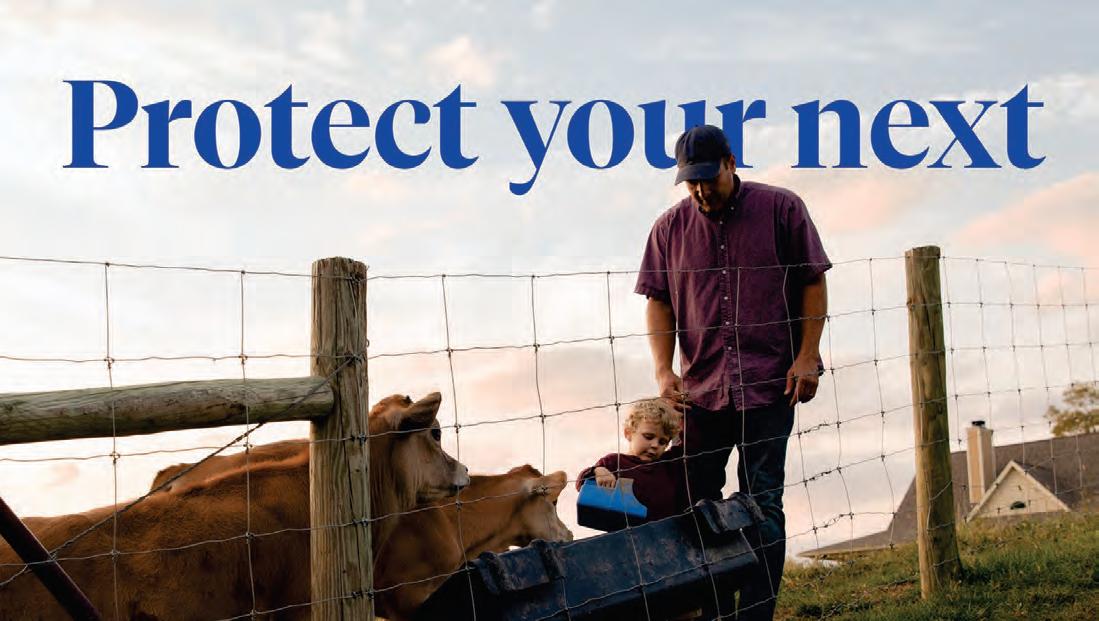
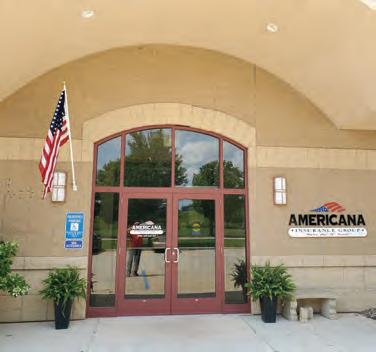
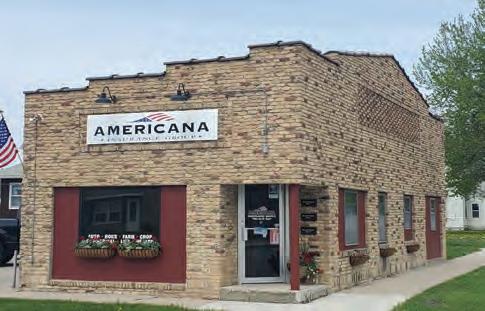

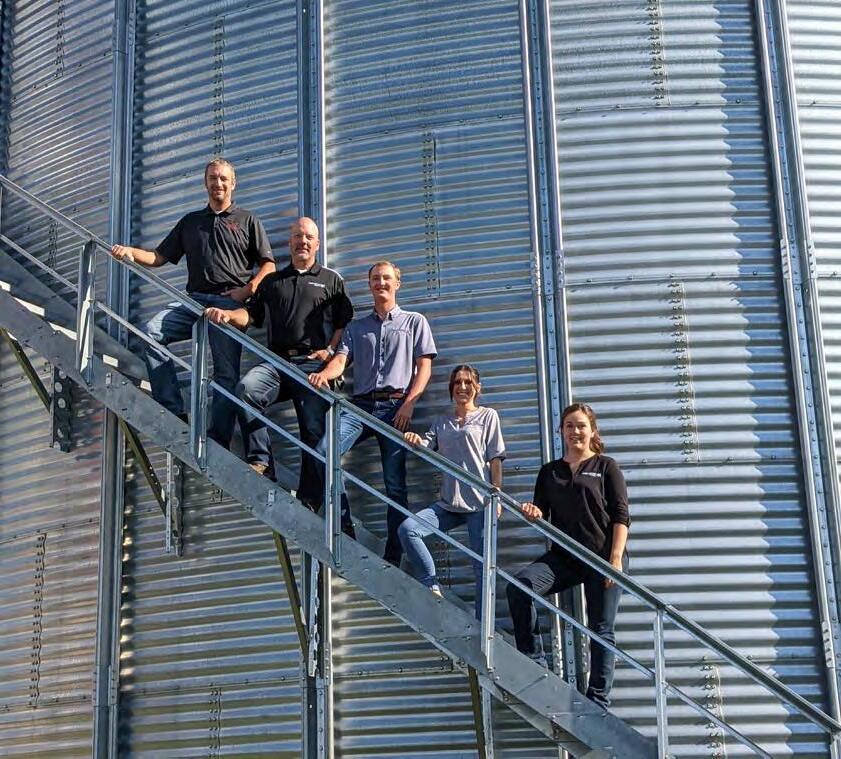


SPRING 2023 | SUP PLEMENT TO THE MOWER AND FREEBORN COUNTY SHOPPER ALBERT LEA OFFICE 1452 W. Main St. 507-373-1945 HARTLAND OFFICE 601 N. Broadway 507-845-2233 FREEBORN OFFICE 214 5th Ave. 507-863-2371 Member FDIC www.arcadian.bank Your ideal source for COMMUNITY OWNED. COMMUNITY FOCUSED. LOCAL AG FINANCING AG LENDING TEAM: Michael
Yocom, Mike Budach, Adam Legred, Ashton Voigt, Jackie Henke
































 Author: Abby Schuft, Extension
Author: Abby Schuft, Extension



















 POET.COM/GLENVILLE
Agriculture doesn’t just power the local economy, it powers the planet. POET is proud to work with local ag producers to create global renewable energy solutions. Turns out, all it takes to change the world is a few big ideas and a lot of hard work.
ASFMRA Land Value/Cash Rent Survey).
POET.COM/GLENVILLE
Agriculture doesn’t just power the local economy, it powers the planet. POET is proud to work with local ag producers to create global renewable energy solutions. Turns out, all it takes to change the world is a few big ideas and a lot of hard work.
ASFMRA Land Value/Cash Rent Survey).



























































 Multicolored Asian ladybeetles seeking warm sunlight and trying to get outside
Multicolored Asian ladybeetles seeking warm sunlight and trying to get outside
























































